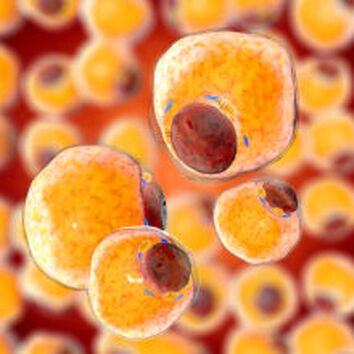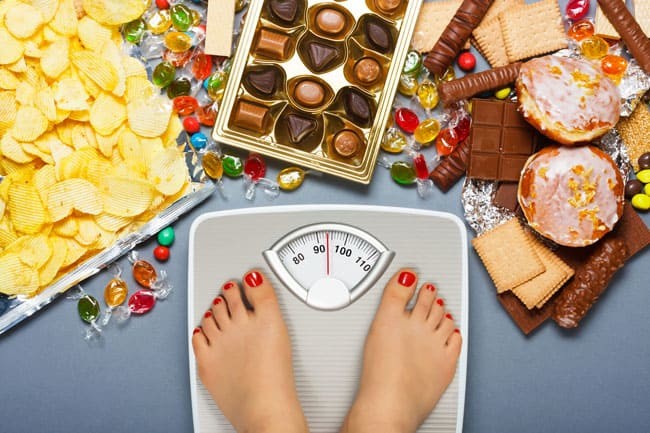|
Children are replicas of their moms and dads mostly with some of them not bearing any attributes of their parents which is rare. Personality and characteristic trait are genetically transferred which makes us gloat with glory when the child behaves like his/her parent. Reproduction is an indispensable part of every person’s life that adds meaning to our existence and helps in taking our family’s virtues and ideologies to future generations as well. But sadly, most women in reproductive age worldwide suffer from obesity/overweight and so do younger adults, adolescents and kids. Such high prevalence of obesity during early years has been attributed to several risk factors that affect early during pregnancy in the form of higher maternal pre-pregnancy body mass index (BMI) and excessive gestational weight gain. These risk factors are modifiable ones but when left untreated they do have a serious effect on the infant size at birth and obesity risk later during life. We also have numerous studies showing that maternal obesity/overweight during pregnancy pose as significant risk factors for higher birth weight and neonatal adiposity and also for childhood obesity later. The pregnant mother is the sole means through which the developing fetus acquires all nutrients needed for normal growth and development but maternal pre-pregnancy status and environment also play an equally critical role as pre-pregnancy obesity has the ability to result in foetal macrosomia (where the birthweight ≥4 kg). Once pregnant, the in-utero environment has an upper hand on foetal development including cognitive, organ development and deposition of fat. The environment in which the fetus develops determines the foetus’s genetic transcription affecting it differently depending on the stage of pregnancy. Its isn’t uncommon for the pregnant woman to develop gestational diabetes during any time of pregnancy and the mother’s carbs intake and increase in insulin insensitivity results in higher levels of maternal blood glucose which can be transferred to the fetus besides the foetus’s own insulin production that increases foetal growth and adiposity. Hence, maintenance of maternal insulin levels is absolutely necessary to avoid any deviation in foetal glucose levels. When such is the effect of maternal nutrient intake it is also equally difficult to impose restrictions and help the woman lose weight before pregnancy as most of the pregnancies go unplanned. But once pregnant it is indeed possible to regulate dietary intake levels of the mother-to-be as maternal dietary energy and protein intake affect neonatal anthropometry making food consumption an integral part of the pregnancy process. Gynaecologists prescribe supplements even before the woman becomes pregnant (such as folates) and these continue until delivery of the child. Though maternal micro- and macronutrient intake affects neonatal body composition we don’t have much data available in this field of science as there are quite a lot other factors including physical activity, socioeconomic status, stress, smoking and drug intake that affect foetal growth and development. The study elaborated below uses cohort from the ROLO (Randomised Control trial of Low Glycemic index diet versus no dietary intervention to prevent recurrence of foetal macrosomia) to study the effect of maternal body composition, demographic characteristics, macronutrient intake and lifestyle changes on neonatal weight and adiposity. Cohort from ROLO Study The present study used 542 mother and infant pairs from the ROLO study in which the mothers had given birth to infants with macrosomia previously and hence, were put on a low-glucose diet to decrease the recurrence of macrosomia. Results of the ROLO study showed that the intervention group experienced significant reduction in glycaemic index and load and also had lower gestational weight gain and glucose intolerance but birthweight or risk of macrosomia was not significantly reduced. All the 542 mothers underwent well-being tests, maternal weight, height, BMI and upper-arm circumference were measured during the first antenatal consultation with maternal weight measurements and gestational weight calculations performed during every subsequent consultation. Once the mothers gave birth, neonatal weight, height, mid-upper arm, abdominal, hip and thigh circumference, biceps, triceps, subscapular and thigh skinfold measurements were taken. This resulted in only 266 neonates having complete data of all the measurements taken. The pregnant woman’s macronutrient intake, glycemic intake and glycemic load was measured using a 3-day food diary given during each trimester of pregnancy. Cluster analysis of the food intake resulted in two main clusters of healthy and unhealthy individuals with regard to diet. While the unhealthy cluster ate more of refined foods, white bread, confectionary, chips, processed meats and high-energy beverages the healthy cluster chose to eat more of fruits, vegetables, cereals, fruit juice, low-fat milk and white meat. Dietary intake was analysed using a self-administered 170 item SLAN (Survey of Lifestyle, Attitudes and Nutrition in Ireland) food frequency questionnaire (FFQ) that was given during the initial stages of pregnancy and returned by 28 weeks of gestation. The data in the FFQ was in turn used to create a Dietary Approaches to Stop Hypertension (DASH) index with a score of 0 indicating total non-concordance and 11 indicating total concordance. A glucose challenge test (GCT) was done at 28 weeks of gestation.  Supplements are a Regular Routine in Every Woman’s Life Supplements are a Regular Routine in Every Woman’s Life Result Maternal characteristics did not change between the control and intervention group except for gestational weight gain, glucose intolerance and maternal well-being score. There was no difference in neonatal weight, length or anthropometric measurements between the intervention and control group except in the case of thigh circumference measurement and in the case of neonatal waist: length ratio that was lower in the intervention group. The control group experienced more gestational weight gain than the intervention group. It was also seen that birthweight was associated with gestational weight gain, birth length was negatively associated with maternal smoking, neonatal abdominal circumference was positively linked with maternal saturated fatty acid (SFA) intake which showed a negative trend as the association switched over to polyunsaturated fatty acids (PUFA) intake in trimester 3. Neonatal thigh circumference was negatively associated with frequency of strenuous physical activity, neonatal chest circumference was positively associated with maternal weight and negatively associated with frequency of strenuous physical activity. Neonatal subscapular skinfold thickness was negatively associated with PUFA intake in third trimester, neonatal waist circumference: length ratio was negatively associated with maternal age and positively associated with maternal smoking and maternal mid-upper arm circumference (MUAC) in early pregnancy. The study clearly shows that maternal diet and lifestyle factors were positively associated with the neonate’s body composition. It also shows the significant changes associated with the intake of different foods thereby proving that neonatal central adiposity was positively associated with maternal dietary saturated fat and negatively associated with low GI intervention groups. Healthy Start Study An observational, pre-birth cohort study was done on 1,410 pregnant women aged 16 years and above prior to 24 weeks of gestation after implementing various exclusion criteria. These moms participated in two research visits during pregnancy-the first visit occurred between 8 and 24 weeks of gestation and the second visit occurred between 24 and 32 weeks of gestation while a third visit happened at the hospital after delivery. The newborn baby’s weight, length, head circumference and skin-fold thickness were measured within 72 hours after delivery and the neonatal body composition, fat mass (FM) and fat-free mass (FFM) were calculate from total mass and volume. Maternal pre-pregnancy BMI was calculated using weight measurements and the woman was categorized accordingly and her physical activity levels were measured using a Pregnancy Physical Activity Questionnaire. The diet consumption of the pregnant woman was assessed several times during the study and its quality was assessed using the Healthy Eating Index-2010 that consisted of twelve components giving a maximum score of 100. The study showed a HEI-2010 score between 18 and 89 with a mean of 54.2. Women with a score ≤ 57 were likelier to be obese and have reported of smoking during pregnancy. Lower diet quality was related to younger maternal age, shorter length of gestation and higher energy expenditure. Also, those neonates born to women with this score also had significantly lower birth weight and fat-free mass (FFM) but there was no difference in birth head circumference or birth length between the two groups. Results showed that energy intake as fat and saturated fat was significantly higher in the group with an HEI total score ≤57 but at the same time empty calories were also significantly lower which is a surprising one! Also neonates born to these women had .58% higher fat mass (FM) compared to neonates born to women with a score ≥57. But women with a score ≤57 had no significantly different FFM proving that an increased %FM linked to lower maternal diet quality shows an increase in neonatal FM rather than a decrease in FFM. This large pre-birth cohort showed that lower diet quality had a greater impact on neonatal adiposity, neonates of women with lower diet quality had 24.9 g more fat mass comparatively. Hence, poor maternal diet quality has the ability to increase neonatal adiposity regardless of maternal BMI. Another study on Middle-Eastern women showed that women having a pregestational BMI were at a 2.5 times higher risk of giving birth to low birth weight infants and having a smaller birth height compared to women with a normal BMI while obese women were at a 7.44 times higher risk of giving birth to macrosomic infants compared to women with a normal BMI. References Maternal Low Glycemic Index Diet, Fat Intake and Postprandial Glucose Influences Neonatal Adiposity-Secondary Analysis from the ROLO Study: https://nutritionj.biomedcentral.com/articles/10.1186/1475-2891-13-78 Maternal Diet Quality in Pregnancy & Neonatal Adiposity: The Healthy Start Study: https://www.ncbi.nlm.nih.gov/pmc/articles/PMC5356926/ Impact of Maternal Body Mass Index & Gestational Weight Gain on Neonatal Outcomes among Healthy Middle-Eastern Females: https://journals.plos.org/plosone/article?id=10.1371/journal.pone.0181255
0 Comments
The universe is filled with people busy doing nothing or doing many things simultaneously. If you are one of those juggling frenzy work schedules (working around 14 hours every day), focusing on part-time jobs along 9-5 work schedules, attending correspondence classes along with office work or constantly on wheels owing to office commitments, your wish to lose weight might seem to be a distant dream and a futile scream-at least from your point of view! Some might use these back-to-back commitments as an excuse to stray away from exercise commitments. Busy or not, your body weight doesn’t pity you for your restricted time availability.
Life is a crazy wheel that spins incessantly until your death. Whether you are busy at work, occupied with household chores at home or a socially-active person, it is understandable that life doesn’t seem simple enough to fit exercise routines in between your over-packed responsibilities but exercise can be your stress-buster that helps you sail through busy work routines. There are a few adept ways in which you can skillfully balance exercise routines and other commitments. Simple Tips to Ensure that Your Exercise Routine Clicks Be a Smart Worker: How long you work out doesn’t determine how much you lose weight. The intensity and accuracy of the physical activity speaks much more than the tick of your clock. Use your restricted time effectively by actively engaging in vigorous-intensity workouts. Be an Early Bird: An early-morning workout leaves space for no excuses that might crop up during the rest of the day. Physical activity in the morning keeps you pumped up with energy to handle the day’s events and also avoids busy schedules and tiredness from obstructing your weight loss plan. It is never easy to creep out of your cozy bedsheets just to walk or jog. But once you follow this practice for a couple of days, it becomes a part of your routine. Please Don’t Eat Out: Meals consumed outside fill your calorie requirements for a day in one meal. The portion sizes offered in most restaurants can easily satisfy hunger needs of two people. Dine out less-frequently and when you eat a meal at any restaurant ensure that you share it with another person. Weekends are no Excuses: Its time to grow up! Instead of lazing away during the weekend why don’t you use the weekend to make up for the lost weekday workout schedules? You can even plan for a workout date with your bestie or a group of like-minded friends who would love to join you for a refreshing exercise session at the start of the weekend. Maybe it sounds bizarre for those who are used to late-night partying but there is not a better way to start your weekend than by exercising. Stand When you Can: There have been articles and research studies buzzing around the fact that sitting too long can affect health. But now, we also have research studies showing that standing continuously is equally bad for health. Its not possible to stand and work until your company provides you with a standing desk. But you can surely stand and do simple workout while watching television, be on the move while speaking with your friend/family over the phone or even arrange for walking meetings at office. Walking meetings are the latest trend which have ample benefits on an individual apart from helping him/her move more. If you are inquisitive and ardent enough to read about the other benefits you must surely take a look at them at www.firsteatright.com. Divide & Conquer: If you cannot squeeze in 30-60 minutes of exercise time together there is nothing wrong in breaking up your workout schedules. Plan for three 10-minute schedules spacing them at three different times of day-morning, noon and night. If you can do it even for five days a week this would have a significant impact on your health. Do simple workouts whenever you get time. It might even be for 2 minutes. But when you fit in five 2-minute workouts during the day you have achieved an extra 10-minute workout altogether. Every Effort Counts: Try to do away with the concept of ‘all or nothing’. Many people either strike to achieve 100% perfection in their diet and exercise plans or ditch them altogether. There is no hard and fast rule that if you have missed a day’s exercise session you can miss out on your diet too. Every small action counts. Rather, when you miss your workout maybe you can go for a smaller portion of meal and take a fruit along with it. Nobody is perfect in this world and the truth remains that none can live perfect forever. Try to accommodate your exercise routines wherever possible and bring in small tweaks to them when time demands. We believe what we see and trust our eyes utmost. A kind gesture by someone right in front of our eyes moves us and we form a positive picture about the individual involved in the act. Hearing something offensive about the same person doesn’t deter our spirits unless we are sure beyond doubts! This is true not only in this regard but in different other aspects of life as well. For instance, we hear about the ill effects and the risks associated with obesity/overweight in the form of diabetes, cardiovascular disease or cancer; health experts and physicians do suggest controlling portion sizes, reducing junk food intake and eating healthy foods to stave off side effects of obesity and newspapers/magazines repeatedly trying to create awareness among public regarding the excess calories present in our juicy burgers, cheesy pizzas and ‘garam’ samosas! But ultimately our minds are like pendulums wavering all the time and we never pay heed to such advices. All these could and would change if we witness the effects of obesity in any of our immediate family member-this awakens our minds and pushes the danger button within each of us to safeguard our health! But isn’t it cruel to learn a lesson after the demise of someone’s health? All this makes one thing clear-we react and act when something happens right in front of us. So, why not use the same concept to help individuals become healthier citizens as well?
Counting Calories to Chop Them Off The advent of weight issues led to the birth of healthier versions of different dishes, salads and more whose recipes often contain total calorie values sometimes explicitly stating each of the nutrient’s share. This helps us pick our suitable dish that satisfies our taste buds without compromising on health. But the same details have been present in bar chocolates, different processed foods and baked good treats that sit on supermarket aisles which we have comfortably been ignoring until now. So, even the mention of total calories doesn’t make an impact on us anymore. Maybe labelling food and drinks with the amount of exercise needed to burn off the calories present in them could help combat obesity. This is the result of a study by a group of researchers from Loughborough University who found that Physical activity calorie equivalent (PACE) labelling reduces the number of calories consumed. A fizzy drink contains 138 calories and instead of showing the numbers in print simply when the same is displayed using symbols stating 26 minutes of walking or 13 minutes of running is required to burn down the calories this would indeed create a better impact on the individual consuming it. The person might even rethink his/her decision to buy the products which would otherwise go into the shopping product without any hesitation. So, under the PACE system a small bar of chocolate would carry information that it would require 23 minutes of running or 46 minutes of jogging to burn off 230 calories that’s present in it. According to the researchers, PACE labels could help cut down calorie consumption by up to 200 calories per day for an individual-people are less likely to buy a soft drink, select 70 fewer calories and eat 80 fewer calories when food and drinks are PACE labelled. Individuals gain weight gradually by steadily eating a few more calories than they burn off daily and such labelling might make any individual think twice before buying anything. Obesity is never monopolized by food lovers but might strike any of us who eat a little more than what’s essential. Again, it’s essential to note that calories aren’t the only nutritional aspect to consider and health is a combination of several things-calories, nutrients and the type of preparation. A small chocolate might contain fewer calories than chicken sandwich but the nutrients in the sandwich are dense and needed for health. It is always better to choose the sandwich instead of the chocolate for a fulfilling meal experience. Choose your foods wisely, exercise daily, eat optimal portions and lead an active lifestyle to stay healthy and in normal weight ranges. Get in touch with dietitians and nutritionists at www.firsteatright.com to help you eat within your designated calorie limits and lead a healthier lifestyle. In theory weight loss looks extremely simple-burn more calories than you consume but in practice it needs greater willpower and patience. Maybe if people are challenged or guaranteed a reward for restricting their food intake and losing weight it would turn out to be a peppy affair. Surrounded by delicacies, open to a variety of tasty treats and having your hands full on choices its extremely difficult to curb yourself from eating all these foods around you. In fact, I sometimes wonder that it’s a blessing that people are not heavier than what they are now! Besides this, individuals lead a far more sedentary lifestyle and expel fewer calories than their previous generations.
‘Eat to live’ holds good no more. More than a means of survival food is considered to be a source of satisfaction, a reward for some achievement or a means to drown away your sorrows. This is one of the main reasons why no kind of a diet plan works successfully in the long run mainly because these plans don’t bring in alterations in your existing meal menus but introduce something very new that’s hard to follow practically in the long run. More than losing weight it’s maintaining the lost weight that’s a nightmare for many. Every nightmare has a great morning to fall upon likewise every failed attempt of weight loss has an alternative plan to help us get going in the right direction. Don’t diet but control portions: Eating is for the wellness of the body, for the essential nutrients to be added for improving fitness levels and improving overall health. Please don’t eat food just for the sake of weight loss. Include plenty of fruits, veggies, whole grains and a limited portion of healthy fats too. Your body requires all the three macronutrients-carbs, proteins and fats-in selective portion. Ignoring fats does no good for your body in fact, it might often result in side effects. Even studies show that people who eat healthy fats control their weight in a better way than those who curb their intake. Eat all kinds of foods but remember to control your portions. Ensure regular physical activity: Alas! You’ve once again heard of the same old mantra-do exercise. However bored or pissed off you might feel upon hearing this statement, a fact is a fact. Increasing activity levels helps to lose weight and also weight control in the long term remains ineffective without regular exercising. Body’s basal metabolic rate (BMR) decreases with age where bone and muscle mass decrease whereas fat mass increases. Its better to focus on different exercises which includes muscle building too apart from your regular cardio and aerobic exercises as muscle building helps to increase body’s metabolic rate. Juggle various approaches: One diet plan doesn’t work wonders for all of us. Take your time, experience different approaches and find the one that best suits you. One technique that seems to garner positive benefits for many include mindful eating which is nothing but being fully aware of the food you eat, relishing every mouthful and enjoying it. It also helps to place your fork down on the plate between mouthfuls and pick them up when you are going to eat the next bite. Cling on to your goals: There might be many failures before achieving success. Weight loss attempts too might result in failure multiple times before you reach your target. Focus and ensure that you never give up. Do something better every day and commit to eating a little more mindful than the previous day. Occasions might arise that put you off the track but its essential that you stay determined and revive eating practices even better than before. Stop not until the goal is achieved whatever mind hinder your progress. If you would like expert advise and suggestions on introducing portion control and changes to your existing meal plans that suit your body conditions please get in touch with dietitians and nutritionists at www.firsteatright.com. When was the last time you were glued to your television screen, laptop or mobile binge-watching your favourite series online? Today, yesterday or last week? Most of our answers would be within these three options and not go anytime backward. What starts as one episode of ‘Suits’ or ‘House of Cards’ becomes nothing less than 6-8 episodes. People have started calling in sick to work, college and schools just to complete the entire season at one go! Netflix and Amazon have completely transformed our viewing routines. What started as a weekly series in our televisions decades back are fed into our smartphones altogether in a jiffy. Times when all of us used to gather around the television to have a glimpse of our favourite TV actors every Friday or Monday has become a nostalgic memory. Such streaming services have in fact taken away the surprise elements offered to us. In fact, research even shows that binge watching episodes decreases satisfaction levels compared to viewing them at a normal pace! Alas, teens and millennials have glorified this phenomenon of binge-watching that those who don’t do it as seen as aliens from the outside world.
Friends with Benefits Binge-watching is nothing but the act of watching multiple episodes back-to-back. A 2014 Netflix survey reported that 61% users were habituated to binge-watching television regularly-anywhere between 2-6 episodes in one sitting but our friends have surpassed these numbers long back. The time has come when weekends are planned around our favourite online series, partying with friends is missed quoting several awkward reasons and negligible time is devoted to family members. Teens and youngsters walk like strangers in their own house with ear plugs constantly put on and their tiny little smartphones playing havoc with their lives. Some do it out of self-interest while most do it out of peer pressure-the fear of being left out in discussions and to stay updated in a WhatsApp chat about the latest updates in the series and comment on all others’ views. These people feel charmed and excited about staying up all night or all day (even without giving a loo break) watching online episodes contribute active participation in any discussion (https://indianexpress.com/article/cities/bangalore/bengaluru-significant-rise-in-binge-watching-has-medical-experts-worried-6029963/)! Friends even hang out at each other’s place to enjoy watching together with live comments and applauds. A Tornado on Health What has been glorified by TV fans has become worrisome to health experts across the globe as there are a greater number of binge-watching cases registered at hospitals bringing in various kinds of side effects after gaming and social media addiction. We have not one or two but too many reasons to stop this crazy act. People are awestruck by the array of content available online that the hours dedicated to fitness, socializing and sleeping have been replaced by continuous hours of binge-watching. As more and more cases of binge-watching have been reported only recently research on it is still in infancy stage but the limited proofs available constantly report poor sleep quality, tiredness, decreased concentration, increased fatigue and insomnia. Adults who watch more than three hours of television content doubled the risk of premature death compared to those who watched less. Sitting continuously for longer hours increases your risk of numerous diseases. Smoking and drinking are an addiction and so is binge-watching. We start with one episode in mind but don’t stop until we have watched 5-6 episodes. During such long viewing hours, we try to squeeze in snacks, lunch or even dinner and end up overeating. We become isolated from the outside world creating our own synchrony with life. What starts as an escape route from problems lands us with even greater problems. Once the binge-watching session has completed the viewer is left feeling anxious, empty and depressed. Studies show that binge-watching is linked to loneliness, affects mental health, prevents self-control and paves way for depression (https://www.theguardian.com/commentisfree/2016/mar/04/binge-watching-mental-health-effects-research). In a sleep-deprived world the act of watching episode after episode of TV series causes more sleeplessness. We have evolved to do best on a near 24-hour sleep cycle and a shift to a later cycle can cause difficulty in falling asleep, waking up and bring about a feeling of sleep deprivation (https://www.washingtonpost.com/lifestyle/wellness/how-binge-watching-is-hazardous-to-your-health/2019/05/31/03b0d70a-8220-11e9-bce7-40b4105f7ca0_story.html). Many have this bad habit of watching an episode right before sleeping and this is a bad idea completely. According to psychologists, binge-watching increases arousal, not sexual but cognitive arousal (the constant feeling of being wired and ready to do more). Frequent binge-watching was linked to poorer sleep quality and more daytime fatigue. Moreover, electronic devices emit blue light that affect the brain regions handling circadian rhythm by delaying melatonin secretion. This keeps us awake prompting is to click on ‘next episode’ without thinking twice resetting circadian rhythm to a delayed schedule. Its also been observed that people sometimes wake up in the middle of the night and start watching something in their devices once again as they are unable to go back to sleep. Above all, it’s the strain to the eyes, neck, shoulders and hands that cause panic among health experts. Films have become secondary options and many have even cancelled their cable subscriptions to accommodate more viewing time for multiple episodes of their favourite series. So, the concept of watching together as a family has almost disappeared. The advent of gadgets has made each of us glued to our very own virtual world which has stopped our dinner discussions on our favourite movie stars, fights over the debates happening in the television or siding against each other and supporting one and other thereby bringing in more integrity making each other close-knitted. Tackling the Tricky Situation Television is a treat to our eyes and an escape into the virtual world where all seems happy and fine. There is nothing wrong with viewing it once in a while or even daily for a limited period. Don’t pause to hit the stop button when you are done with an episode; take breaks in between to stretch your hands and legs; finish off pending work or go for a walk. Also, try to eat healthy foods while watching by keeping them ready even before you sit down to watch. Also, instead of watching it alone try to do it with family or friends as you start discussing about your favourite episodes, what you disliked about the series and the discussions revolve around other things too in course of time establishing connectivity with others, bringing in happiness and socializing at the same time. Otherwise, all of us would become introverts who start giving lame excuses for missing out on social meetings and parties for the sake of binge-watching! References How Unhealthy is Binge Watching? https://www.rd.com/culture/binge-watching-unhealthy/ How Binge-watching is Hazardous to your Health? https://www.rd.com/culture/binge-watching-unhealthy/ Binge-watching is Changing the Way we View Stories: https://www.forbes.com/sites/danidiplacido/2017/09/07/binge-watching-is-changing-the-way-we-view-stories/#77c7019d6155 Binge-watching TV is Linked to Poorer Sleep & Insomnia: https://www.forbes.com/sites/alicegwalton/2017/08/18/binge-watching-tv-linked-to-poorer-sleep-quality-and-insomnia/#3bb715ef25ee Every time I look at my little daughter the question whether she is blessed or cursed to be born in this era constantly haunts my mind and I regret my question immediately! It even makes me angry when someone tells her that she has a bright future in this world with her smartness and intelligence. Despite being highly talented, working hard, dreaming big and striving for success she belongs to a generation of children who have been brought into a planet that’s fast collapsing-many countries are close to reaching day zero in water facilities, malnutrition rules worldwide, famine is predominantly present and health issues overpower everything else.
We can feel the sun getting hotter by the day, glaciers melting away and the rivers going dry. Climate change is causing a dire impact on people around the world with its worsening chronic diseases, deadly diseased insects and the common occurrence of the harmful heat waves. Cold and fever that vanishes in three days generally requires 5-7 days of antibiotic medications nowadays, heart diseases strike the young and we are becoming victims to a number of viral infections and diseases. The effects of climate change are unevenly distributed and kids exist as the most-harmed individuals of the lot, according to a new study published in the highly renowned medical journal ‘The Lancet’. Kids: The Greater Victims of the Cruel Climate Change Air pollution seems to be a global problem with most of the countries lacking pure air for breathing-one of the basic necessities for survival! It has been the reason behind the loss of millions of lives. This can be contributed to the rise in the number of personally owned vehicles, the absence of sustainable living practices and burning of fossil fuels such as coal that add to air pollution rates thereby affecting the lungs and hearts when inhaled by individuals. This causes climate change and the air pollution from fossil fuels that exist as driving factors to pose a threat to a kid’s health right from its formation in the mother’s womb and thereon. It’s the kids who are maximum threatened by climate change owing to their physiology (a child’s heart beat is much faster and breathing rates are higher which makes them absorb more polluted air compared to an adult). According to a clinical instructor at the Harvard Medical School, with every degree of warming, a child born unto this world today faces a future where their health and well-being are increasingly impacted by the realities and dangers of a warmer world-such as rise in low-birth-weight infants and presence of chronic respiratory diseases such as asthma. Learn more about asthma and how it can disrupt quality of life of the individual by visiting the website www.firsteatright.com. Physicians show living proof of better health in kids belonging to previous decades-these children had better and more functioning lung tissue comparatively. A kid born today might experience a world that’s warmer by 4 degrees that’s well above the 1 degree of warming we have experienced until now. These children are bound to eat yield procured from less nutritional crops and struggle more to make ends meet as working outdoors becomes a greater burden with rise in temperatures. But the study also shows that there is still some hope left if action is taken immediately. First would be to try limiting warming to less than 2 degrees Celsius, also the goal of the Paris climate agreement, and this requires the combined efforts of all countries of the world in order to shower benefits on all people, especially the younger generation. Old-modelled cars and engines are already being prohibited from functioning and the future would definitely pose a ban on petrol and diesel cars. Battery-operated transportation would be the only ray of hope. Individuals are also coming up with significant measures to improving global health via tracking high climate risk cities in different countries, calculating the spread of disease vectors and providing alternate solutions to help people cool off during extremely hot conditions. Kids born today who should not suffer for no mistake of theirs are bound to suffer for the very mistake of ours! Remember, you and me have a role to play-what we do and how we act now can impact how hot the world would be around 2090 or 2100. Each of us born unto this world has a right to enjoy nutritious foods, the pleasant weather and the greenery and climate changes should not hinder our quality of life in any way. We must dedicate more resources into building a sustainable food system that’s sure to shower benefits on the future generations to come. Carpooling, using public mode of transportation, consuming more plant-based foods and curtailing air pollution are some ways in which we can contribute towards a greener planet and a healthier generation of kids who hold the keys to our future. A dolphin’s heart rate can dip to 12 beats per minute to conserve oxygen while diving down the water and increase to 120 beats per minute when resurfacing. While a dolphin can adapt to these variations in blood pressure rates, what would be the result of such varying blood pressures in the case of humans?
High blood pressure is a condition where the force of the blood pushing against the artery walls is on the higher side. Hypertension is the most prevalent chronic disease in India and many remain unaware of their diagnosis. This ignorance can cause your life as untreated high blood pressure can lead to heart attack, stroke or other heart diseases. Leading a healthy lifestyle that includes eating a well-balanced, low-salt diet, exercising regularly, restricting alcohol and smoking and staying in a healthy weight range are practical ways to prevent and manage high blood pressure. If you are overweight/obese or having high blood pressure, it is better to get in touch with a registered dietitian nutritionist at www.firsteatright.com who can plan a healthy diet chart to meet your required nutrition goal. For those of you out there who hate the term ‘fats’ and run away from foods containing this nutrient let me make this clear: Firstly, fat is a nutrient and in fact a macronutrient that’s essential for the body’s functioning and secondly, not all fats are created equally bad, there are good ones too that you need to pick up for your well-being. At the same time, every individual needs to incorporate essential fat portions in his/her meal, regulate meal contents to include a combination of macronutrients and micronutrients and enjoy the food for a well-balanced meal that’s also mentally satisfactory. But when these practices are not in place and you are all over the foods that you enjoy, obesity and other health conditions are not far away! This imbalance has indeed resulted in an obesity-driven world which is not far away from witnessing an obesity epidemic without proper intervention methods. If you are obese/overweight you can lose weight in a scientific way by getting in touch with registered dietitian nutritionists at www.firsteatright.com.
There are three different fat cells in the body: white fat which is the most common of all and associated with conditions such as obesity and diabetes. Brown adipose tissue is integral to heat production in all mammals and has been the apple’s eye of researchers as it provides scope for weight loss. The brown fat cells are packed with energy-producing mitochondria that aid in burning fuel efficiently. Beige fat cells too contain more mitochondria and are found dispersed within white adipose tissue but are induced in response to certain environmental conditions and external cues such as cold climate and exercise. Though brown cells have been known to us since sometime beige cells are quite new and are gaining popularity as they promise to hold the key to weight loss treatments and help in understanding how environmental factors control cell specifications and maintenance. Releasing Gene Inhibitors Though previous research shows that white fat tissue that overexpresses early B-cell factor 2 (EFB2) recruits more beige fat cells, there are many other factors that trigger the release of the protein-coding gene. Transducing-like enhancer 3 (TLE3) is a protein located at the same region as EFB2 and this protein acts like a switch stopping EFB2 from converting white to beige fat and also preventing energy expenditure and glucose use. A group of researchers were interested in the functioning of the TLE3 protein and looked into ways to inhibit its functioning to enable methods for preventing type 2 diabetes. These researchers deleted the TLE3 protein from a group of mice and placed them in cold conditions for several days together. The environment maintained was such that the animals kept trying to develop beige fat cells and, in the process, these mice were successful in developing more beige fat cells. Through this process the research team got to understand the effect of the absence of the TLE3 protein and also were able to examine the impact of the abundance of beige fat cells on the mice’s health. Results showed that these mice experienced increased energy expenditure under normal conditions and weight loss during cold conditions but it was also proved that the mice did not gain much weight even in the absence of a cold environment. The primary goal of these researchers was to use these results to create interventions for metabolic disorders. Maybe we would be able to release a drug in the market sometime in the future that targets TLE3 thereby serving to cure metabolic diseases such as obesity and diabetes-two diseases that are spreading like wildfire in human beings owing to our haphazard lifestyle practices and eating habits. How about filling your plate with a scoopful of ice cream, chocolate mousse cake or tiramisu before moving onto the main course? The buffet spread attracts everyone and misses none with its ravishing food options, presentation and choices. A buffet costs lesser than a la carte options in some star restaurants as we are commonly told that seeing the spread makes the heart content and the tummy seem full. We try to push down as much food as possible but finally most of it either goes down the bin or remains unserved on the plate. There are some who’ve got an unmatchable appetite and also some others who eat for the sake of eating (because they have paid money). If you are really concerned about controlling portion sizes and calorie intakes in a buffet despite being drawn towards the different varieties you’ve tumbled upon the perfect article! Go for More! At a party or a function its rather unpleasant to turn down dinner offers nor is it polite to simply fill the plate without eating anything. On the other hand, if you are a party animal there are quite a many chance that you eat at more than a couple of buffets and land up putting on weight. A new research that tried to come up with the healthiest options for individuals interviewed around 134 diners who were about to dine at a cafeteria about their eating habits. The study was for four days during which desserts such as cheesecake and cut fruits were placed either at the start or end of the buffet spread (not together at any cost) along with other healthy and unhealthy starters, main courses and others. While the participants’ food choices were duly noted down the quantity of leftover meals were also noted to calculate the calories consumed. It was observed that diners who consumed high-calorie desserts at the start of the meals consumed low-calorie mains and others compared to those who chose low-calorie desserts as their first course during the meal. That was mainly because those who ate fresh fruits at the start were rather strong in assuming that they had done justice to their calorie intake and are hence, permitted to indulge in high-calorie foods henceforth. Whereas, those who ate the cheesecakes were guilty of consuming a high-calorie dessert even before choosing any other dish and hence, continued to choose their other foods with caution and precaution. Even after controlling for other variables such as age, gender, BMI and exercise routines the researchers came to the conclusion that diners who ate a high-calorie dessert at the start of the meal consumed 30% fewer calories than the ones who preferred a low-calorie meal. Another study researched on 160 participants who were questioned on their level of hunger and their assumption on the quantity of items they would eat to calculate their overall calorie intake. Here, the desserts were either chocolate cake or fruit salad. Here also, the results were similar to the previous study where the overall calorie intake decreased when the participants chose to chocolate cake over fruit salad. There was another different study that wanted to check whether a diner’s mindset had the potential to affect his/her food choices. With around 296 participants here they were divided into two groups where one group was requested to remember a 2-digit number and the other group a 7-digit number.  Try Eating the Cheesecake at the Start of your Meal Try Eating the Cheesecake at the Start of your Meal Those participants with a lesser memory load showed results as the previous two studies whereas those who had to memorize a 7-digit number in fact were likelier to choose a high-calorie main course and sides even after choosing a high-calorie dessert. This clearly shows that mindset and initial food choices affect the health of the meals consumed. Don’t jump on the dishes in a buffet but make wise choices that are good for you. If you require assistance with weight loss beyond such choices in the form of diet plans and exercise schedules then www.firsteatright.com is the place for you as reputed dietitian nutritionists there are ready to help you on any of your requirements whole heartedly. Girls love long hair, fancy clips, dangling earrings, glittering dress and fancy beauty products and boys love sporting macho looks, long beards, a thick moustache, muscular arms and rugged clothing. Its natural that we associate beauty with girls and brawns with boys. The differentiation starts right from childhood when Power puff girls, Shimmer and Shine, and Frozen have been sidelined as a girl’s thing whereas boys are inclined towards watching superhero stuff, Doremon and so on. The characters in these girl-focused series come with long-flowing hair, pretty hairdo’s, the standard pink-and-purple dresses and above all, look extremely thin and curvy. So, before everything else these kids are clear about one thing-beauty! Their definition of beauty includes being thin and slim. So, as these young girls grow up into adolescents their mindset is totally inclined towards staying slim. Moreover, the number of beauty products, advertisements and photographs depicting models almost never focus on a normal-weight individual but those that have a super-thin structure. We believe what we see and the media holds a great control over our thoughts and behaviors. It influences women’s idea of looking good, being thin and has a greater responsibility in affecting the weight control behaviors and attitudes displayed by young adolescent girls and women.
Girls are at the maximum growth stage during puberty and engaging in destructive health habits brings about unwanted health effects right from menstruation problems to nutrition losses. Youngsters today live in a virtual-reality world trying to re-create things that they love seeing on-screen. This makes girls vulnerable to the gimmicks and photoshop effects of models portrayed in magazines and ads. Many girls start dieting and engage themselves in unhealthy weight loss practices to lose weight and become like the models whom they worship. Its impossible to find a young woman who is satisfied with her body image irrespective of whether or not she flaunts a well-sculpted figure. This has been the boon to the beauty industry and the supplements markets today as they have come up with a line of weight loss supplements, pills, creams and more to help our lovely girls lose weight! This, along with the unhealthy weight loss tips and tricks given in magazines and websites add to the dangerous consequences that’s being increasingly witnessed in our young girls and women today. A Canadian study proved that 27% of 12- to 18-year-old girls suffered from disordered eating behavior; anorexia nervosa, an eating disorder, is becoming predominant in countries such as Hong Kong and other Asian countries and, in the United States alone there was a 2-fold increase in sale of dietary supplements and weight loss pills between 1994 and 2002. Health communication theory shows that ads and entertainment industry cultivate beliefs and attitudes that shape behavior and girls who are constantly exposed to these develop an affinity toward dieting that make them go about taking a variety of health-related decisions that can have an impact on their health and lifestyle all through their lifespan. So, how are the weight loss claims understood by girls, how it affects them and what kind of attitude do they need to counter the deceptive and insistent strategies used by marketing people while advertising weight-loss products? Young Girls & their Attitude to Weight Loss Advertisements The Federal Trade Commission (FTC) after examination of 300 ads from magazines, TV, newspapers and radio identified a number of ‘Red Flag’ claims used in weight-loss advertising such as ‘weight loss without exercising’, ‘permanent weight loss’, ‘weight loss despite previous failures’ and ‘safe and natural claim’. Many of them show unbelievable before and after pictures taken along with testimonials as a common advertising trick. The study here looks into a diverse sample of male and female adolescents and their psychological well-being after reading about dieting, eating tips and health loss tricks in magazines. The study wanted to understand about three things:
The study extracts data from project EAT (Eating Among Teens) which is a school-based survey of nutrition and weight concerns among 4746 adolescents. Question about magazine reading included ‘How often do you read magazine articles in which dieting and weight loss are discussed?” for which the responses could be “Never”, “Hardly ever”, “sometimes” or “often”. When answers are either of the last two, it comes under ‘Frequent Reading’ category. Healthy, unhealthy and extremely unhealthy weight control behaviors was assessed using the question ‘Have you done any of the following things in order to lose weight or keep from gaining weight in the past year?” and the choice of behaviors included: Binge eating that was assessed with the question “In the past year, have you ever eaten so much food in a short period of time that you would be embarrassed if others saw you (binge eating)?” (“yes”/ “no”). Body satisfaction, self-esteem and depression were assessed through different methods. Weight status was found through height and weight measurements. Gender, school level, ethnicity and socioeconomic status (SES) was analysed using a single item of self-report of ethnic identity. Results
Emotional Blackmail Adolescent girls are dissatisfied with their body due to ‘awareness of mediated social pressures’ and ‘internalization of these pressures’. A group of individuals decided to study the response of girls to print and television (TV) weight loss advertising. This knowledge can be applied for creating media literacy and health education curricula. The study included 42 adolescent girls aged between 9 and 17 years residing across seven regions in the United States. They were made into groups of three and each group was shown specific examples of print and TV ads for weight-loss products and asking for their views on such products. All of their responses were audiotaped. 4 girls were 9-10 years old, 26 of them were 11-13 years, 7 of them were 14-15 years and 5 were 16-17 years old. 16% of the girls were from poor economic background, 31% came from working-class families, 24% belonged to middle-class, 22% to upper-middle class and 7% were from wealthy backgrounds. The research team collected samples of 42 TV commercials endorsing weight loss products such as dietary supplements, diet aids and food replacement products. Samples of 15 women’s magazines that included 31 ads confined to weight loss, meal replacements and diet ads were included. Finally, 7 ads including 4 print, 2 30-s TV commercials and a 3-min excerpt from a 30-min TV infotainment was shortlisted. All the participants were shown all seven ads one at a time along with a set of non-directive open-ended questions that helped in discussing and interpreting the different ads shown. This included questions such as ‘What’s the first thing you think about when you look at this ad? What do you notice specifically when you look at this ad? Which elements catch your eye? How do you feel when you look at this ad? What does this remind you of?’ At the end of the session all of them were invited to ask any questions. Two main points were considered: views of the participants on deceptive advertising claims and persuasive techniques and knowledge and attitude demonstrating critical analysis of advertising based on key concepts. Depending on the answer given by the girls each of the concepts were given a score of ‘satisfactory’ when their answer revealed that they had a clear understanding of the concept, ‘some evidence’ when they had some understanding of the concept and ‘no evidence’ when the answers showed no signs of any understanding of the concept. Results Though girls are awed by advertisements relating to weight the study did show that all of them had a certain level of knowledge regarding the deceptive techniques used in weight-loss advertising. For example, before and after pictures were not believed and 71% participants thought this to be a persuasive technique. Most of them had the lingering doubt whether the picture was modified, whether the individual in the photo really used the product advertised or above all, if it was the same person who was photographed in the before picture as well. Participants’ View on Persuasive Techniques The claim ‘weight loss products yield rapid weight loss’ was reported as inaccurate by 57% of participants in the study and only 17% believed the claims on products such as ‘doctor-endorsed and scientifically proven’. But many 1participants believed and relied on products that had the image of a white-coat doctor. 11% found weight loss products claiming to be ‘safe’ and ‘natural’ to be unrealistic and persuasive. Most did not decipher nor pay attention to visual imagery that vouched for the safety of the products nor to the warning language present in print form minutely in some corner of the product. It is good to know that 48% of participants recognized claims of ‘permanent weight loss with no diet or exercise’ to be persuasive and deceptive. The advertisements also triggered a lot many participants to think which helped them realize the best way to lose weight-they understood that eating healthy, exercising and being active is the right approach and it is not reliable to engage in drinking some juice or taking a pill to lose weight. Critical Thinking About Weight Loss Advertising The second research question asked includes ‘What kinds of attitudes, knowledge and skills can build critical thinking in response to the persuasive techniques used in weight-loss advertising? Eight elements of critical analysis were identified when the girls answered this question.: Identification with character: More than 90% participants related to the emotions and perceptions depicted by the character in the advertisement. Compare and contrast ads with real-life experiences: Almost 59% girls compared the ads with some real-life experience with some family member. The compare-contrast statement prevailed as a ‘reality check’ to help them compare the representation of weight loss shown in the ad to the real-life experience of the close people in the girl’s family. Use of prior knowledge about weight management: 40% participants were able to bring out their views on the correct ways to weight loss that included regular exercise, portion control, eating fruits and vegetables, limiting fast foods, chips and soft drinks when they were shown ads portraying claims such that you need no diet or exercise to lose weight. Identification of target audience: Girls were not able to immediately distinguish ads targeting older and young groups. They could not also identify techniques specially used to target women audience. Recognition of visual techniques to establish credibility: Ad makers try to improve the credibility of the product by placing them in locations where it could enhance its credibility. For instance, placing a product that claims to be ‘natural’ in the center of a forest or using a doctor to advertise for a medically proven formula brings on greater appeal to the product. Recognize message subtext: Ads force customers to buy by stating implied and direct messages. Only very few participants were able to read between the lines to decipher the actual message contained in the ad. Most others were willing to buy it due to the captivating images or the alluring text words. Recognize financial motives: Though many girls could decipher money as an intention of these ad makers only one participant could clearly see the economic realities of weight-loss advertising from the perspective of the advertiser-they pour in money for the commercial to reap greater benefits. Many girls could identify that these commercials use actresses and spokespersons as they are famous but these people do the commercial only for the sake of money. Recognize omissions: None of them came up with immediate questions on an omission that they noticed, none came up with health risks or dangers linked with products containing ephedrine or other chemicals but they came up with questions that implied that these girls were indeed thinking about the information and visuals shown in the ads. Enabling youngsters to analyze and comprehend weight loss-related advertisements helps them learn more about healthy eating and also develop critical-thinking skills. It is an enriching learning experience that would help these young adolescents learn aplenty about optimal weight loss techniques, eating habits and lifestyle routine. References Reading Magazine Articles About Dieting & Associated Weight Control Behaviors Among Adolescents: https://www.jahonline.org/article/S1054-139X(02)00455-X/pdf How Adolescents Girls Interpret Weight Loss Advertising https://academic.oup.com/her/article/21/5/719/753094 Landmarks are often used to describe routes or locate places of interest and it could be anything from big supermarkets and theatres to malls or restaurants. I have a friend who always chooses to use the nearby restaurants to direct passers-by when enquired upon a specific building or route. She has even gone to the extent that her password for using the college’s internal website was ‘Badam Halwa’. How on Earth could she come up with something as trivial as the name of a sweet for safeguarding her details? Maybe her love for sweets and mithai was way beyond our comprehension or even an addiction!
Decades back addiction pertained to drugs or alcohol but now it has encroached all walks of life. Humans these days are addicted to shopping, watching movies or TV series, eating sugar or even being active on social media sites. The latest addiction included by the World Health Organization (WHO) in its long list is gaming disorder. Beyond these is the existence of food addiction that has catapulted our lifestyles out of proportion. That’s because, while we can stay off drugs or games its never possible to stay away from food. Abstaining from food can put you in greater trouble, even death and the process of eating is a lifetime one with no breaks in between. Each of us would have gone through the ups and downs of eating at some point in life-eat more, cut down portion size, fast and again overeat. The cycle repeats itself with the efforts benefiting some people helping them slim down while for others it might bring about more trouble in the form of obesity/overweight. Get in touch with registered dietitian nutritionists at www.firsteatright.com to help you fight obesity and reach normal weight. Ultimately, none of us wish to become drug addicts or victims of obesity. It’s the inability to stop doing something when you want to stop and this inability is the bud that blossoms into addiction! An Imbalance of Hormones High-fat, high-calorie foods are just like cocaine and heroin- the more we eat these foods the more we crave for them to trigger pleasure centres in the brain. A study by a group of researchers has shown that consumption of junk foods or binging is as addictive as smoking or heroin and this could cause compulsive eating and obesity (https://www.telegraph.co.uk/news/health/news/7533668/Junk-food-as-addictive-as-heroin-and-smoking.html). Also, just like how drug addicts develop tolerance to a drug, food addicts also develop tolerance to a food. Though the food might satisfy them less and less and they are full their binge eating continues. Dopamine, the hormone that helps us realize the pleasures of life such as food, sex and intoxication must be in balance with striatum, rich in D2 receptor which binds with dopamine, to control our pleasures. For instance, one glass of alcohol or one scoop of ice cream and not beyond that. When dopamine release is minimal and D2 receptors very few our behaviour is greatly impacted and we start acting impulsively- overeating when we feel so regardless of the consequences (https://time.com/5718798/food-addiction/). Besides dopamine, leptin also plays a major role. Lower leptin levels bring about hunger and the levels are expected to increase once satiety is reached but for people with addiction, leptin levels are not released in sufficient quantity or the brain ignores these levels which makes the person continue eating the food without stopping once satiety is reached. Anyone obese or overweight are often judged as being lazy, sluggish or even branded as a ‘couch potato’ without any sympathy as they are assumed to lead a life devoid of a healthy diet plan, physical activity or exercise. While food addiction was viewed as lazy appropriation sometime back it has now been discovered that it is the same chemical, dopamine, that’s the root cause behind such crazy cravings. There are also reports supporting the theory that brain mechanisms underlying obesity may be similar to those in substance addiction. The tendency to want more food might be hard-wired in the brain of overweight people, according to the new study. Finding Whether You are A Victim of Addiction None of us get addicted to fruits and vegetables. But we have often been surprised by how all kids alike become fans of burger, pizza, noodles or jellies! There have been times when I have even mockingly joked with my husband that companies manufacturing these foods use some magic element to make individuals fall in love with their product! But research shows that keeping a bowl of sugar in front of a sugar-loving person would not make him/her immediately grab a cube or two from the bowl and pop it into the mouth. The sweets consumed by such people are basically a trifecta of irresistibles-sugar, fat and salt. As standalone ingredients these might not be extremely tempting but in combination with each other the food products that are available create magic and make people eat just for the sake of pleasure and nothing beyond it. Its high-fat, high-calorie foods such as pizza, cheeseburgers, cheese, cake, packaged cookies, ice creams, French fries, soda, chocolate, bacon, rolls, popcorn and fried chicken that’s processed and containing excessive amounts of sugar that tops the list of additive foods. Each of us love to munch upon different foods, we might be ardent fan of spiced-up cuisine or love the sweet meats. So, what makes love for food an addiction for some? It might be called an addiction when you eat beyond your capacity and feel bloated and irritable the next day, when you don’t stop eating even when overfull, have certain trigger foods such as pancake or pizza where a small bite of it can put you on an eating spree, you behave and eat normally like others in a public gathering but gorge in isolation, isolate yourself from social gatherings as you can’t stay quiet at the sight of foods and its too tempting right in front of you (that you decide against meeting people to refrain from becoming a victim), you shop for a planned binge, cannot stop eating despite suffering from obesity, lethargy and other consequences or you find food as a means to cope up with the harsh realities of life (a strain in your relationship with spouse or stress at workplace). Food is a source of energy and a thing of pleasure. Unlike drugs that can end you in trouble foods can be a source of motivation and wellness when consumed in moderation. In fact, it is constructive pleasure in comparison to the destructive pleasure obtained from drug use. But once victimized to food addiction it is almost impossible to get out of it without external help. Don’t hesitate to ask your loved one to take you to the physician who might prescribe diet and lifestyle interventions along with counselling and behavioural therapies to get you back on track. The best way to stay safe and away from all these problems is to contain your temptation to overeat! References Obese People Suffer from Food Addiction: https://www.telegraph.co.uk/news/health/news/7533668/Junk-food-as-addictive-as-heroin-and-smoking.html Studies Show that Some Foods May Be as Addictive As Heroin & Cocaine: https://www.forbes.com/sites/quora/2016/10/13/studies-show-that-some-foods-may-be-as-addictive-as-heroin-and-cocaine/#ef2574456113 Having an inclination to look younger and age slower? Maybe, you have the inclination to keep your heart younger as well! There might be innumerous creams, lotions and other stuffs marketed to seduce people into buying anti-ageing products. Where do we stand in terms of regenerating heart muscle cells and renewing heart health?
Be Smart, Keep Yourself Young at Heart Heart attacks are not a pleasant sight to watch! It is in fact a scary experience, be it whether you’re facing the issue or you are with someone who is experiencing the attack. A heart attack occurs when blood flow to the heart muscle is reduced severely or even nulled. The specific heart muscle that’s lost blood flow is stuck with injury. The extent of damage to the heart muscle depends on the area covered by the blocked artery and also the time between the attack and start of treatment. Heart muscles heal by forming scar tissue and the healing process takes a couple of weeks. These scar tissues don’t pump good enough as other healthy tissues. The difference in the pumping capability is determined by the size and location of the scar tissue. The quantity of time taken to heal depends on the impact of the attack and the individual’s healing capability. While it normally takes around 8 weeks for the heart muscle to heal there has been research studies showing that exercise helps in healing the muscles at a better adept rate comparatively. When an individual performs exercises at the correct time for a correct duration there are chances of reversing the ageing of heart and blood vessels. Arteries carry blood and these become stiff when we don’t lubricate it with the required amount of exercise. Unhealthy lifestyle practices and sedentary life are worse contributors of stiffening of arteries. Studies show that compared to those who exercised for 2-3 times a week, individuals who exercised for more than 4 times every week had healthier arteries. Enabling Development of New Heart Muscle Cells Every heart attack patient is required to create new heart muscle cells to heal. It is no secret that physical activity and exercise are good for the heart but the lingering question of ‘why’ still remains a mystery. A research team now has one of the many reasons why exercise is good for the heart-it stimulates the heart to make new muscle cells-with or without a heart attack. Generally, the human heart has less capacity to regenerate comparatively. While youngsters can regenerate 1% of their heart muscle cells annually the same decreases as a person grows old. This decrease is greatly associated with increased risk of heart failure and we need to curb this risk by bringing in ways to increase heart cell formation. Exercising is a great and inexpensive way to keep your health at its best. When a group of researchers analyzed different ways to bring about an increase in heart cell formation the first thing that struck their mind was exercise. They decided to put it into test on a group of healthy mice which were allowed to run on a treadmill for about five kilometers every day. Another group of healthy mice were not allowed such actions and remained sedentary. The team found that the healthy group of mice which exercised produced over 4.5 times the number of new heart muscle cells compared to the sedentary group. So, we are now assured that exercise promotes growth of healthy heart muscle cells but what about those who have experienced a heart attack? To check this, the research team again checked on a group of mice that had experienced a heart attack. This group ran 5 kilometers and when they were compared to their sedentary counterparts, were shown to exhibit improvement in the area of heart tissue where new muscle cells were formed. The concept is simple-if you wish to maintain heart health you need to compensate for the loss of heart muscle cells due to injury or ageing by provoking the birth of new heart muscle cells. The study above proves that its practically possible to make the heart younger by exercising more daily. Along with exercise please ensure to follow a healthy diet schedule to protect your heart. Get in touch with reputed dietitians and nutritionists at www.firsteatright.com to get the best suggestions and recommendation in terms of eating habits and physical activity plans. With the overpowering number of babies delivered through C-section, normal delivery has become a rarity these days. Blame it on the pregnant woman’s health, lifestyle routines or changes in environment the fact remains that mode of delivery has seen a tremendous change in the recent decades. C-section was a complicated procedure which required prolonged hospital stay, higher expenditure and greater pain for the mother but now even mothers who have experienced C-section deliveries are discharged within a couple of days and the pain experienced has also diminished. In fact, there are more women preferring a C-section delivery fearing unbearable pain and on the other hand, there are a handful of them who would love to experience delivery pain as it makes them feel complete and establishes the fact that they have entered motherhood. One of my friends who struggled during her first delivery (but finally gave birth via normal delivery) opted for a natural child birth at a birthing centre in Kochi. The procedure followed there is entirely different and only after she experienced this she became aware and also created awareness among others too that the normal deliveries that happen in hospitals are not 100% natural but have glimpses of antibiotics and drips dispensed to invoke pain on the mother-to-be. I see many women around me opting for natural birthing methods these days in order to deliver a healthy baby that’s naturally healthy without any antibiotics or medications (these are avoided as much as possible) dispensed to the mother during pregnancy. While we can argue about what’s there to fuss so much about different birthing options it also boils down to the very fact that the mode of infant delivery can affect the composition of the baby’s gut microbiota that in turn plays a pivotal role in the well-being of the infant as an adult later in life.
Seeding at Birth The gut microbiome is integral to an infant’s growth, development, nutrition and immunization and we have numerous researches linking the gut bacteria to human health (gastrointestinal diseases and more). The evolution of the gut microbiome composition starts right from birth and to be precise, exactly from when the baby is delivered with the mode of delivery having a strong influence on the colonization and composition of the intestinal microbiota. Its been proved that newborn infants acquire their mother’s microbiome from birth canal during the delivery process and its these bacteria that occupy the infant’s gut. Comparing this composition with that of infants delivered through C-section offers huge scope for understanding the dramatic changes that result as a difference in the delivery method. The type of pacifiers and feeding modes also strongly affect the infant’s oral microbiota composition which makes it evident that the timing of sample collection is important and might even change the course of the study result. The study below collected samples of the oral microbiota of infants immediately after birth and compared the difference in colonization patterns that happened due to different modes of delivery. Difference in Oral Microbiota Composition in Babies Born Via Different Modes of Delivery Initially the study consisted of 100 participants (80 vaginal and 20 C-section births) but 2 C-section and 6 normal delivery babies did not meet the inclusion criteria which left the study with 92 participants. All the 92 participants were grouped into vaginal or C-section delivery and showed no difference in age, gestation week, pregnancy weight gain, gestational diabetes, infant sex or infant birthweight. 18 C-section deliveries were teamed into one group and 27 vaginal deliveries were also clustered with the C-section group as they had spent longer time delivering the baby (almost 2532 minutes compared to 581 minutes). 8 cases of emergent vaginal delivery were clustered into the vaginal group. The researchers identified 6 major phyla of oral bacteria that included Actinobacteria, Bacteroidetes, Firmicutes, Proteobacteria, Synergistetes and Tenericutes. Firmicutes, Bacteroidetes and Actinobacteria generally dominate the vaginal delivered babies while Bacteroidetes, Proteobacteria and Firmicutes dominated the C-section delivered babies. Comparison between the two groups at the phylum level showed that there was significantly more Actinobacteria, Firmicutes and less Bacteroidetes and Proteobacteria in the vaginal delivery group compared to the C-section group. At the genus level, Lactobacillus, Prevotella, Bifidobacterium, Corynebacterium, Bacteroides, Gardnerella, and Ureaplasma dominated the vagianlly-delivered group while Petrimonas, Bacteroides, Desulfovibrio, Pseudomonas, Staphylococcus, Tepidmicrobium, VadinCA02 and Bifidobacterium dominated the C-section delivered group. Lactobacillus and Petrimonas are the two genera vastly different across the two groups. There are various studies that show that infants born via C-section are prone to developing allergic rhinitis, asthma, eczema, obesity and diabetes compared to those born vaginally. Another study showed that bacteria in newborn were similar to mother’s vaginal bacteria while the bacterial content in C-section babies resembled that of the mother’s skin. The study here collected oral samples from participants immediately after birth and the differences between groups in oral microflora can be attributed to the vaginal contact. The research team found that the oral cavity of the newborn delivered via caesarean contained different bacteria mostly dominated by Bifidobacteria that’s not airborne suggesting an important point that bacteria acquisition occurs within the uterus. Lactobacilli dominates vaginally delivered infants and, in this study, too 30 cases from natural labour contained more of this bacteria (which protects intestinal mucosa). The vaginal delivery group also contained more of Bifidobacteria (maintain immune system & reduce allergies) and Akkermansia (protects against metabolic conditions) both of which are integral for better health. Providencia or Gardnerella were also found in 15 naturally delivered infants. The 27 vaginally delivered infants who were included alongside C-section delivery showed that the mothers spent longer in-patient time in the delivery room and underwent more pelvic examination which prevented these infants from acquiring their mother’s vaginal microflora. Those who received regular pelvic exams were also subjected to large amounts of povidone iodine which means that the patient’s vagina contained more iodine which could have affected the transfer of mother’s microbiota to the baby. Re-establishing Gut Microbiome Composition with Breast Feeding We have studies pertaining to the fact that the absence of a well-established gut microbiota is linked to metabolic and allergic diseases such as diarrhea and malnutrition in Bangladeshi children, overweight/obesity in 7-year-old kids, infant asthma during the first 100 days of life and paediatric Crohn’s disease. While there are studies that bacteria acquisition begins in utero evidences are not strong enough and we have a greater number of studies showing that bacterial colonization begins at birth dominated by various prenatal and postnatal factors the most dominant of which include delivery mode, environmental factors, feeding pattern and antibiotic usage. Vaginal birth delivery helps in the passage of healthy bacteria to the born infant while c-section delivery is associated with delayed maturation of gut microbiota in early life which increases the risk of childhood obesity. Likewise, breastfeeding has always been associated with a lower risk of allergic diseases and obesity risk compared to formula feeding as it paves way for more Bifidobacterium and Lactobacillus compared to formula-fed infants. The presence of these two results in a more acidic environment in the GI tract that defends against common pathogens. An increased exposure to antibiotics (prenatal and postnatal) increases the risk of diabetes and obesity as there is a disruption to the microbiota and loss of beneficial bacteria. A Chinese study combined the effect of delivery mode, antibiotic exposure and feeding pattern on the gut microbiota composition of infants and the beneficial effect of breastfeeding on infants born through c-section delivery. The study was done on 120 Chinese infants at 6 weeks postpartum. Information about their mode of delivery (laboured or elective), cause for caesarean delivery, breastfeeding or formula feeding was obtained. Faecal samples of infants were collected and the infants were divided into two groups: antibiotic (A group, N=26) and non-antibiotic (NA group, N=94) based on postnatal antibiotic exposure. In the NA group, the mode of delivery and feeding patterns were analysed to discard any influence of antibiotics and the infants were once again divided into vaginally delivered (V group, N=60) and cesarean delivered (C group, N=34), and exclusive breastfeeding (B group, N=67) and mixed feeding (M group, N=27) group. The researchers identified 3,367, 929 bacterial sequences in 120 infant fecal samples in which 8 phyla and 147 genera were observed. Firmicutes (44.9%) was the most abundant phylum, followed by Proteobacteria (22.7%), Actinobacteria (18.7%), and Bacteroidetes (13.2%). The top 10 abundant genera were Bifidobacterium (17.3%), Clostridium sensu stricto 1 (12.8%), Klebsiella (10.7%), Bacteroides (8.7%), Streptococcus (8.0%), Escherichia-Shigella (6.2%), Veillonella (4.0%), Erysipelatoclostridium (2.2%), Faecalibacterium (2.0%), and Enterococcus (1.7%), respectively. Compared to the V group, the C group was characterized by a decrease in phylum Actinobacteria, class Actinobacteria, order Bifidobacteria and family Bifidobacteriaceae, as well as an increase in phylum Firmicutes, classes Negativicutes and Clostridia, orders Selenomonadales and Clostridiales, and family Lactobacillaceae. Four genera were significantly different: Bifidobacterium was enriched in the V group, and Lactobacillus, Veillonella, and Klebsiella were enriched in the C group. Mixed-fed infants harboured more class Negativicutes, order Selenomonadales, families Veillonellaceae and Enterococcaceae and genera Veillonella and Enterococcus, compared with the exclusively breastfed infants. Based on delivery mode and feeding pattern the 94 infants were regrouped into 4: vaginally delivered and exclusively breastfed (VB group, N=43), vaginally delivered and mixed-fed (VM group, N=17), caesarean delivered and exclusively breastfed (CB group, N=24) and caesarean delivered and mixed-fed (VM group, N=10) to find the difference between vaginal-delivered and c-section delivered infants. For all vaginally delivered infants feeding pattern was not significantly associated with gut microbiome composition. For caesarean delivered infants the association between feeding pattern and gut microbiome composition was statistically significant and the CB group infants shared a more unique gut microbiota than CM infants. The researchers concluded that caesarean infants consist of an unhealthy gut microbiome that could be corrected with breastfeeding. Relative abundance of the three (Enterococcus, Veillonella, and Faecalibacterium) of the top 10 dominant genera was different between the CB and CM infants; there was a significant decrease in Enterococcus and Veillonella with an increase in Faecalibacterium in both VB and CB infants compared to CM infants. CB infants shared common taxa with VB infants compared to CM infants. There was no significant difference found in the top 15 dominant taxa between antibiotics exposed and unexposed infants except for genus Lachnoclostridium. This study shows that the damage done to gut microbiome composition due to caesarean delivery is partly restored by exclusive breastfeeding resulting in a composition that’s similar to vaginally delivered and exclusively breastfed infants. A study published in the reputed journal ‘Nature’ shows that the differences in gut bacteria between vaginally born and c-section delivered infants evened out by 1 year of age and also that the infant’s microbiome composition did not come from the mother’s vagina but from her gut. Researchers studied 1,679 samples of healthy gut microbiota from nearly 600 healthy babies and 175 mothers. Fecal samples were taken from babies aged 4, 7 or 21 days old delivered by any mode of delivery (vaginal or c-section). Researchers found that babies born through vaginal delivery had more health-associated bacteria from their mother than those babies born through c-section. While previous studies showed that bacteria were swallowed by the babies on its descend down the birth canal this was the first study that shows that the babies had very few of the mother’s vaginal bacteria in the gut with not much significant difference between babies born through either mode of delivery. Despite all these difference in microbiota composition one must understand that babies born though C-section deliveries don’t grow up to be extremely different from those babies born via vaginal delivery. We don’t find any great differences in health and all we must focus thereon must be to improve the gut composition of the infant that’s born via C-section delivery. References The impacts of delivery mode on infant’s oral microflora: https://www.nature.com/articles/s41598-018-30397-7 The Perturbation of Infant Gut Microbiota Caused by Caesarean Delivery is Partially Restored by Active Breastfeeding: https://www.frontiersin.org/articles/10.3389/fmicb.2019.00598/full C-section Babies Have a Unique Microbiome-Here’s Why that Matters: https://www.popsci.com/microbiome-baby-newborn-health-c-section/ Babies Gut Bacteria Affected by Delivery Method: https://www.sciencedaily.com/releases/2019/09/190918131447.htm We love to have a look at the buffet spread before choosing to go for it at the restaurant. The fancy names and the food representation invoke our taste buds immediately. Presentation is an art that has been the focus of many restaurants these days. They have courses for the same and ample efforts go into this department. Anyone would love the sight of a well-presented dish and a unique name does increase the desirability level of the individual. Though looks can be deceptive it’s these looks that create the first impression on an individual. But gradually, this is not good enough to create a lasting impression in due course of time. It is the quality of the food and the taste that brings in customers repeatedly.
These days, even parents take care to prepare different food varieties, include their kid’s favourite ingredients and also present the dish in attractive forms (maybe a funny polar bear or an attractive rainbow-colored sandwich) to ensure that the children finish off the meal at school. Cooking classes and online videos come to our aid here. As adults too, we like and dislike certain fruits and vegetables, especially bitter ones repel many of us. But when the same is treated as a unique produce, cooked with a tinge of difference and presented in an alluring form anyone would be tempted to try out the same. Contrarily, many individuals are also attracted to the healthy nature of foods and feel good eating it. But their efforts to eat healthy food doesn’t stay strong for long just with nutrition information. Don’t Select Labels in Haste without Looking Out for Some Taste A study published in a journal reported that labelling foods with flamboyant names is helpful in making individuals choose and consume more vegetables than otherwise with the only rule that the food is flavourful too. This is a far cry from our perception of food that healthy food is always tasteless and bland. Maybe its high time that we devote our attention to preparing delicious as well as healthy food too! This is what triggered a group of researchers to try out a new approach to healthy eating. Trying to use names displayed in popular restaurants for less tasty food the research team came up with their own version for naming vegetables using the flavour of the dish along with other words that would enhance a positive feel over the dish. For example, these used the label “twisted citrus glazed carrots” and “ultimate chargrilled asparagus”. The team was able to track down 1,40,000 decisions about 71 vegetable dishes that has been labelled with taste-focused, health-focused or neutral names. The results of the study found that individuals chose to put veggies onto their plates 29% more often when the food had taste-focused rather than health-focused names and 14% when the foods had taste-focused rather than neutral names. It was also observed that individuals ate 39% more vegetables by weight when there were fancy labelling given to the veggies. Also, given taste-focused names worked only when the dish was delicious too as the research team observed that given taste-specific names in the absence of any taste in the dish created little impact on the consumer. Including names such as ‘ginger’ and ‘garlic’, preparation methods such as ‘roasted’ or adjectives such as ‘sizzling’ invoked a desire among individuals to taste the dish. The study was done in college students, individuals who are at the threshold of enjoying their newly found independence in choosing things right from what to eat to where to go. They are surrounded by stressors including education, environment and food choices. Helping them choose healthy food by creating a positive experience with food is the best way to take healthy eating to the next level in these individuals. “It is a scientific fact that your body will not absorb cholesterol if you take it from another person’s plate”-Dave Barry It’s only natural that everyone likes to be the hero by branding someone else to be the villain. Being in the limelight for a good cause is a blessing but when the same is indeed for a negative one, it takes away all the charm surrounding it. Human body is a piece of art that’s been sketched and carved keeping the minutest nuances in mind. A gift of nature, the body reciprocates in the way we treat it! When we talk about health it always concerns eating nutritious foods, staying active and being energetic. Fats and cholesterol are the permanent villains here who are dark and twisted in the eyes of everyone. What we don’t try to pause and think is the fact that it’s us who have made these devilish and unwanted. Mankind is not kind enough to accept out flaws in eating habits and lifestyle changes but we love turning around the platesonto someone/something else. The same is true with cholesterol too! Though I mentioned that we have two villains technically its only one as cholesterol is a type of lipid (another name for fat) but most of us aren’t aware of this fact about the fat!Cholesterol is a waxy, fat-like substance produced by the body naturally to keep us healthy. What, healthy? So, isn’t cholesterol the villain here? Absolutely not! In the absence of this substance none of us would be able to make cell membranes, vital hormones like testosterone and estrogen and bile acid required to digest and absorb fats and vitamins. When such are the effects of it on our body why on Earth do we blame this poor thing all the time for everything right from heart disease to blood pressure? That’s because, cholesterol is not “bad” by nature but their numbers determine whether they would be having a positive or negative effect on our body! That’s the reason why our doctors insist on taking a lipid profile test and advice against eating too much of high-cholesterol foods as these might have a debilitating effect on overall cholesterol levels. Fight for the Right Type of Cholesterol Hero and villain, sunshine and darkness, fat and thin and the list goes on. Cholesterol too comes as good and bad: low-density lipoprotein (LDL) or the bad cholesterol and high-density lipoprotein (HDL) or the good cholesterol. LDL is probably the villain here as too much of it can combine with fats and other substances to build up in the inner walls of the arteries resulting in a thick, hard substance called plaque-sounds familiar isn’t it? Yes, it’s the buildup of plaque (atherosclerosis) that causes our arteries to become narrow and clogged restricting normal blood flow thereby resulting in a heart attack or stroke. HDL is the hero here as it helps in removing LDL from the body and also might remove cholesterol from plaque in the arteries. Apart from LDL, triglycerides are another type of fats whose buildup in the artery walls can cause plaque. Its major source is the food that we choose to eat besides being produced by the body. Test to Keep Health Profile in Best Shape Going for a blood test (fasting or non-fasting lipid profile as recommended by the physician) is the only way to get your hands on the actual cholesterol numbers of total cholesterol, LDL cholesterol, HDL cholesterol and triglycerides (blood fats). The next question that probably is in your minds now is regarding the right time to go for a lipid profile test. It isn’t smart to bring about problems on your own but it isn’t also wise to procrastinate health-related checkups indefinitely. A health issue is not the only indication to go for a lipid profile and the American Heart Association (AHA) recommends checking cholesterol levels once between the ages of 9 and 11 years and 17 and 21 years for kids and young adults with no family history of early heart disease. From the age of 20 it is advisable to take a lipid profile test every 4-6 years until the risks remain low. If you are an individual between 40 and 75 years of age it is better to ask your physician to check your 10-year risk; if you are between 20 and 39 years of age it is better to ask your doctor to assess your lifetime risk. Treading On the Right Path to Lessen Your Chances of a Cholesterol Attack The lipid profile gives an exact picture of your cholesterol levels to your physician and the right move thereon is to focus solely on keeping LDL, HDL and triglyceride levels under control. Once the physician is confident that you are at an increased risk, he/she comes up with a set of questions that would help the doctor structure a clear-cut treatment plan to lower your cholesterol levels and reduce the risk of heart attack and stroke. Two basic questions that every doctor is sure to assess includes your medical and family history and your individual risk of heart attack or stroke by considering your age, sex and history of diabetes, high blood pressure, high cholesterol and smoking. Be sure to answer questions that pop up on your diet routine, physical activity levels, alcohol or drug intake, supplement use or previous history of heart attack, stroke or blockages in the arteries of your heart, neck or legs. Once he/she has the risk factors handy the physician uses a risk calculator to determine your overall risk of CVD. For instance, a 10-year risk estimate of 10% implies that of 100 patients with the same set of risk factors as yours 10 of them would be suffering from heart attack or stroke in the next 10 years. Are Your Risks Inborn? Age is a natural risk factor that cannot be reversed which is directly proportional to the risk of high cholesterol. Those with a family history of high cholesterol are at an equal risk and so are those who are obese/overweight. Medically called as familial hypercholesterolemia (FH) it’s a condition that’s present in families where the individuals suffer from very high LDL levels (>190 milligrams per deciliter). For such people, changes in eating habits and lifestyles sadly doesn’t reduce cholesterol levels and medications become mandatory to decrease LDL levels by 50-75%. Apart from these, race/ethnicity can influence your 10-year risk calculation and the common groups at a higher risk include:
Choosing the Right Treatment Can Have a Significant Impact on Health Abnormal lipid profile results don’t mean that your health is doomed beyond repair. When people roll back from stroke and cancer what’s the big deal in dealing with high cholesterol levels? First and foremost, irrespective of whether or not the physician prescribes medications he/she makes definite changes to your lifestyle which includes a heart-healthy diet, increased physical activity, losing weight and not smoking. Get a list of allowed/disallowed foods to make your choices simple and your cooking routines easier. Allowed Always choose more of those foods that are low in saturated and trans fats which include:
Disallowed It is recommended to restrict the intake of the following foods:
Besides eating habits there are quite a few other ways to improve your health which include:
Striding On the Medication Path The world is never in shortage of medicines as we have numerous branded and non-branded medicines fighting each other for securing the top place in the healthcare industry. Though we do have a number of medications for lowering cholesterol levels too, statins are the commonly prescribed ones that are also associated with directly reducing the risk of heart attack and stroke by 21% as they prevent the production of cholesterol in the liver. If you are someone suffering from CVD for which the doctor has already prescribed statins and now, your LDL-C levels are also above 70 the doctor might prescribe medications such as ezetimibe, PCSK9 inhibitors and bile acid binders either separately or in combination with each other. The physician can only guide and suggest lifestyle changes and medications to improve your health. Its finally the individual who needs to put his/her heart and soul in managing the medical condition and protect the body against the attack of diseases and health problems. Self-care is integral to overall wellness and it has been estimated that self-care contributes to more than 40% of your health. Unraveling the Myths People love to gossip and an interesting news is like a piece of cake for everyone who loves to have a bite before it’s over. Likewise, news spreads like wildfire irrespective of the truth behind it. Listed below are some of the common myths and their facts relevant to cholesterol.
 Choice of Foods has a Great Share in Determining How you Fare in Cholesterol Levels Choice of Foods has a Great Share in Determining How you Fare in Cholesterol Levels While cholesterol indeed exists as the villain in our lives it is in our hands to make it a hero by pursuing a healthy lifestyle that’s filled with nutritious foods, daily exercise, good sleep and peace. You might like to indulge in a double cheese burst pizza or a fried chicken tub at the mall but once you remind yourself of all the side effects, I don’t think anyone would ever try to include any of those as a regular part of our meals. There are theories and news that might persuade us to try anything that’s simple and easy, for instance, we have a latest research that eating an avocado a day lowers bad cholesterol levels. Many would instantly hang on to every word of the research and try it out as this doesn’t tire the mind or strain the body but only includes something that we all love to do-eat food! Be sensible and understand that it’s not one single ingredient or food that can bring about radical changes to your body and its well-being but a couple of factors that together work hard to keep us healthy. Enraging Overweight Kids by Teasing rather than Encouraging them to Workout Leads to Weight Gain10/13/2022 Childhood is a tender stage wherein every comment, criticism, appreciation or remark leaves an impression deep within their minds. The world is not filled only with people who love and care but is also an abode for those who mock, bully and tease. Such reckless actions are predominantly seen in school-going children who are major victims to bullying or name-calling. Schools especially can be a brutal place for kids with obesity/overweight as they become the laughingstock of other students, called by names such as fatso, mocked, ridiculed and teased. Such actions and behaviors rip apart a child’s heart which basically expects love and care.
Pro bono Teasing? Until now, we have heard many suggestions and theories that making fun of an overweight/obese child prompts them to make diet and health-related changes to lose weight and improve their lifestyle but a recent study proves just the opposite. Researchers at the National Institute of Health (NIH) carried out a long-term study on the effects of teasing on obese children and published its result in the reputed journal Pediatric Obesity. Obesity among children is growing to be a major problem and the World Health Organization has estimated that there would be more than 70 million obese children in this world by 2025. Apart from severe health problems weight changes affect a child’s mental and emotional well-being to a great extent. The research by NIH was conducted on 110 children whose average age was around 11-12 years. Either these children themselves were overweight or had parents both of whom were overweight. Overweight parents were also considered as a part of the study because there are evidences showing that children of overweight parents tend to grow into obese adults later in life. At the start of the study these children filled out a questionnaire asking them details whether they were teased anytime about their weight. Almost 62% reported positively that they were indeed teased about their weight at least once and 21% kids who were not overweight but at a risk of weight gain also reported being subjected to such acts of mockery. The researchers followed-up on the kids for 15 years with an annual visit. Irrespective of their weight at the beginning of the study kids who were teased often about their weight gained 33% more body mass and 91% more fat per year compared to kids who were not teased. Those kids who were teased more about their weight gained more weight (approximately 0.20 kg more per year) and body fat over time, according to the authors of the study. Consequences of Weight-related Bullying Apart from weight gain, teasing and bullying increase stress levels promoting release of cortisol hormone that stimulates appetite and also increases the risk of depression and anxiety. Depression and anxiety lay the path for eating disorders, stimulate the individual to binge eat and makes the kid stay away from physical activity. These kids start avoiding gym classes, swimming sessions and sports fearing that other children who make fun of their attire and size. This withdrawal increases weight gain possibilities much more. Read more about eating disorders and their effect by visiting the website www.firsteatright.com. Body shaming has become dominant and this study proves it once again where more than 60% overweight children reported bullying. Sadly, it’s not only students who tease their fellow classmates or friends but also teachers and parents are involved in this. Parents and teachers must take the first step towards stopping this attitude. They must help kids understand how their teasing can make the overweight kid feel isolated and hurt his/her feelings, teach the overweight kid different strategies and ways to cope with such unruly behavior, encourage them to eclipse such teasing and move forward in life. Parents can be role models and take the initiative to improve their kid’s health-maybe go out for a walk together, play a game of football or plan a trek trip over the weekend. We receive enquiries on a daily basis asking for help with a ketogenic diet plan to lose weight. For those new to the word ‘keto’, the Keto diet might be the latest diet fad popular for the last couple of years but it is not something new to physicians and dietitians as they have been using it for treating epilepsy since the 1920s. The point of concern here is whether this type of diet plan is healthy and suitable for long-term practice as a weight loss strategy? Still, Keto’s fan base is only skyrocketing and Google searches are hitting new heights every day with more and more books publishing keto-friendly recipes and blogs covering every single aspect of this diet that attracts individuals. According to Sara Seidelmann, a nutrition researcher at Brigham & Women’s Hospital, Boston,” There’s absolutely nothing more important for our health than what we eat each and every day” and the effects of the Keto diet on our health stands as a big question mark!
Famously known as the high-fat, low-calorie diet people following the keto diet aim to achieve 70-75% of their calorie needs from fats, 15-20% from proteins and 5-10% (20-50 grams per day) from carbs. This is in startling contrast to the recommendations of health experts who say that a healthy diet plan should include 45-65% from carbs, 20-35% from fats and 10-35% from proteins. Such reduction in carbs literally means that individual has to avoid even fruits, starchy veggies, pulses and whole grains but rely on eggs, chicken, meat, fish, and butter to fill their tummy. Getting its name from a process called ketosis (happens when there is not enough energy from carbs to perform activities and hence the body uses stored fat as an energy source) the diet is designed in such a way that the process is initiated paving way for weight loss. Such disproportionate macronutrient proportions don’t comply with any of the nutritional guidelines and must be branded only as a passing diet fad. How on Earth do we think that such a restrictive diet plan could add nutrition and health to the body or even be suitable for long-term? Not Everyone’s Cup of Tea Though we don’t know for sure how the keto diet works wonders on people prone to seizures researchers say that there are potassium channels in the brain that can have a quieting influence on electrical excitation and the channels work better when the brain uses ketones for energy. Research also suggests that a ketogenic diet can treat people with obesity, type 2 diabetes and fatty liver disease. But the National Lipid Association (NLA), USA strongly states that even these individuals who benefits from the diet plan must pursue it for not more than 2-6 months and not without the supervision of a physician or dietitian. NLA also warns that people suffering from dangerously high cholesterol levels must avoid keto and other low-carb diets as following this diet plan might lead to increase in LDL cholesterol (LDL-C) levels which in turn raises the risk of cardiovascular disease. The World Health Organization too states that overconsumption of butter and bacon might land a person with colorectal cancer risk. Such strict suggestions indeed worry us but as per NLA’s statement, extremely low-carb diets might aid in short-term weight loss but they show mixed effects on health markers that can contribute to heart disease risk. Weight loss is possible but various recommendations show that the weight loss achieved by following a keto diet is similar to what people achieve by following other diets that allow increased consumption of carbohydrates. A meta-analysis of 13 randomized-control trials showed that people on a ketogenic diet lost more after a year and improved their triglycerides, HDL and blood pressure compared to those on a low-fat diet. But after two years of follow-up there was an improvement in HDL levels but no difference seen in weight loss between the two groups (https://www.smh.com.au/lifestyle/health-and-wellness/can-eating-fat-help-you-lose-weight-lets-look-at-the-ketogenic-diet-20160929-grr1vo.html). There is absolutely no way that the keto diet can be followed forever given its suggestion of macronutrient composition. If you are going to be an ardent keto follower you cannot eat more than an apple to fulfil carbs (1 apple provides roughly 20 grams of carbohydrates) intake or munch on a banana (20-30 grams of carbs). In case of young and healthy adults removing abundant carbs might not be extremely dangerous but the point is whether it is necessary. You are sure to experience issues such as bad breath, constipation, monotony of eating the same foods, imbalanced food group intake (restricting an entire food group can never do good anytime) and flu-like symptoms but there have also been claims of reduced hunger due to reduced secretion of ghrelin hormone and increased weight loss. There are some individuals who have lost 2-3 times more weight than individuals with other eating habits but most of it is based on short-term results. Besides, every person pursuing the keto diet must be disciplined, extremely focused and have sufficient means, energy resources and time. Despite such rigid requirements the diet never fails to impress people with its results. Though the diet benefits the group of people mentioned above there is need for more research to determine whether such strict carb restrictions are needed to enjoy these perks. There are no long-term trials of low-carb diets and health outcomes and we don’t have any clinical outcome events like heart attacks, strokes, cardiovascular deaths diabetes events and total mortality. Also, weight loss is not easy for anyone and it depends on various factors that have a strong impact on the person’s ability to lose weight and maintain the lost weight. Any diet can promote weight loss as the basis of every diet is to reduce the amount of net energy consumed. It is essential to pursue a diet that can become your lifestyle and replenish your health rather than leaving you antisocial or fatigued. Hence, following a well-balanced diet with social support, behavioural strategies and ample physical activity is the best way to lose weight or maintain the lost weight. References Low-carb Keto Diets have Some Health Benefits and Some Risks: https://www.reuters.com/article/us-health-heart-keto-diet/low-carb-keto-diets-have-some-health-benefits-and-some-risks-idUSKBN1WH2H4 High on Fat, Low on Evidence: The Problem with the Keto Diet: https://www.theguardian.com/lifeandstyle/2019/jan/07/high-on-fat-low-on-evidence-the-problem-with-the-keto-diet What About Everyone Else: Is Keto Diet Safe in the Long Term? https://www.rd.com/health/healthy-eating/is-keto-diet-safe/ You Asked: Should I Try the Ketogenic Diet? https://www.smh.com.au/lifestyle/health-and-wellness/can-eating-fat-help-you-lose-weight-lets-look-at-the-ketogenic-diet-20160929-grr1vo.html Having an infant or a toddler in the house is a pleasure to the family but it might as well be a painstaking job to ensure the safety of the child in and around the house. Parents nowadays take a number of steps to keep their homes child-friendly: they install rubber edges for tables, avoid getting sharp-edged items, don’t leave any dangerous things within a kid’s reach and even arrange for wall-to-wall carpets. Remember those days when you built a pillow wall around your sleeping child to prevent him/her from falling off the bed? We cannot forget those golden days when we were constantly on the move removing small objects and dust that might attract our kid’s attention. Even when they grow into teens, they bring upon problems such as concussions or fractures due to their over-spirited sporting skills. Despite mammoth efforts, there are daily cases of emergency reported in hospitals complaining of a sudden fall of the infant from the high-raise bed or a concussion acquired from playing football. We can see angry and helpless parents accusing each other of how the situation could have been avoided in the first place and the helpless child either lying unconscious or bleeding on the emergency table!
We now have a new study from USA showing that traumatic brain injuries in kids and adolescents are mostly associated with daily consumer products and activities such as home fixtures and sporting practices. According to the American Association of Neurological Surgeons (AANS) a traumatic brain injury (TBI) is defined as a blow to the head or a penetrating head injury that disrupts the normal functioning of the brain and occurs when the head hits an object suddenly or when an object pierces the skull and enters the brain tissue. TBI is predominantly present in males. Believe it or not, boys and young men still seem to be naughtier trying to act on an impulse, are engaged in dangerous sporting activities and try to outpower each other ending up in TBI and other issues. Is it all wired in the genes? This is something to think upon and for inputs on this you can always visit www.firsteatright.com for information. Non-fatal Traumatic Brain Injuries The study performed on children aged <1-19 years showed that nearly 3 of 4 nonfatal TBIs that necessitated a visit to the emergency department (ED) involved common consumer products. During the study period more than 4 million pediatric TBI patients were admitted to the ED of which 72% (three-fourth of non-fatal TBIs) of them were linked to consumer products. The product groups associated with TBI included sports/recreation, home furnishings and fixtures, home structures and construction materials, child nursery equipment, toys, home electronics, personal use products and other similar products. In the sports category, football, basketball and bicycles were common causes; in the household category, beds, chairs and tables were predominant contributors; and in the home structures and construction materials product group floors, stairs and ceiling/walls led to the greatest number of TBIs. Beds were the most common cause of TBI in kids younger than 5 years, bicycles were the common culprits in kids aged 5-9 years and football was primarily associated with TBIs in children between 10 and 19 years. Uneven flooring and fabricated stairs commonly lead to falls due to slipping, tripping and falling. This finding is not something new but the statistics are alarming. Kids younger than 5 are mostly indoors which prompts them to explore the house as much as possible. Interestingly, car seats were quoted as the fifth leading cause of injury in infants. While the seats ensure better safety when used rightly many parents use them as baby carriers in a risky way. Kids between 5 and 9 start playing outdoors on their own and are often seen cycling on their tri- or bicycles that can lead to falls and injuries during the initial days of practice or during those times when they race, and children above 9 years are engaged in active sports, their energy levels are great and they cannot be curtailed to play slowly or consciously-such is their age. But doctors can play a role in preventing TBI. While diagnosing and treating the physician asks about the background of the head injury and also discusses its symptoms. During these times, the doctor can utilize the opportunity to talk to parents and kids about the precautionary and safety measures they can take to avoid such injuries in the future. Even during visits that don’t pertain to TBIs the physician can educate their patients on the risks of TBIs and help them go through measures that can minimize the risk. Parents, please never leave infants and toddlers unattended. You might be very busy but kids deserve our full attention. The child might seem to be engrossed in playing the xylophone for a minute but the moment you disappear he/she might try to insert his/her hand into the plug socket or jump off the bed. Older children too need proper guidance and instructions before they are sent off for playing games or riding a bicycle. Work can be completed anytime but life lost cannot be replaced! We cannot be perfect and there are chances that children might hit, twist, fall or hurt themselves in the process of growing up (and this is not bad!) but we should take every action possible to ensure that the kid is not pushed into dangerous situations due to our lack of concentration. Office might be your second home but indeed it’s got its share of restrictions and rules. We’ve been given our tiny own cubicles at workplace and introducing liveliness into this place entirely depends on our taste and efforts. Some individuals’ cubicles are like a whiff of fresh air which makes your feel peppier, eager to work more and lifts your spirits whereas some other workstations are mundane. In between all the important discussions, meetings and personal work comes the inconspicuous lunchtime hours which are not even listed in some employees’ itinerary. Either they grab a bite on their way back home or munch down something sitting in their desk working away. But how good is it on your health and above all, how hygienic is it? The Relentless Worker Though we keep insisting that smart work is better than hard work the number of hours you sit at office and make people aware of your presence do count in few work settings. Individuals are also of the concept that a person sitting at his/her desk without breaks (or eating at his/her desk) and working diligently is a hard-working person who definitely needs a praise! But there is nothing good about eating snacks or meals at the desk. It’s not only bad for your health but can also be annoying for other employees. The second part is very much true. For instance, let’s say that it’s around 12 pm or so and you open a box of garlic rice which sends out an aroma instantly to all other people in the room. Already some of the guys have started feeling hungry but keep working anyways to wait until official lunchtime. While you might apologize for eating at your desk its necessary to remember that all others are immediately disturbed. If you feel the need to eat at your desk, do it inconspicuously. Its advisable to take a small break at least every two hours to flex the body, take a short walk during lunch and be energetic. Abstaining from taking a lunch break limits even the little exercise that we could get from walking to the cafeteria for lunch. Even if your office permits you to eat at your desk others might find the aroma of strong foods such as garlic, chilli, onion and radish to be disturbing. While you have the right to eat any food of your choice it is also necessary to remember you have no rights to disturb others. Go easy on the spices and keep everyone happy at your office. Despite all these, if you still insist on eating at your desk at least avoid getting yourself attacked by foodborne illnesses with the tips given below:
Workplace Safety Some of the tips given here can help you ward off bacteria and germs from laying their hands on your food:
 Don't be Too Generous to Feed Germs & Bacteria Too Don't be Too Generous to Feed Germs & Bacteria Too Lunch Break Can Make a Great Difference to Your Work Routine Your lunchbreak can have a psychological effect on the mind affecting your thinking and emotional state. This is the result of a research study done on 32 female participants of whom half of them ate alone at office and another half went out for a leisure meal together. At office, the participants ate their meal in a short span of time in the absence of any company but at the restaurant the participants took time to select and eat the meal along with others. Those who went out also had to walk back a short distance to reach office. After their meal, the participants were measured their sematic memory, cognitive control and error processing and processing of facial expressions. Those who ate outside reported feeling much relaxed and displayed improved facial processing which improves their creativity and connectivity to others. Many officers and managers might see a prolonged lunch break as a potential threat to productivity, but it can help the employee work better, stress little and improve output. Your lunch can actually determine the course of events that might happen during the rest of day. Going off for a relaxing lunch break with your colleagues can improve bonding with them. A strong relationship at work gives you happiness, a soul to rely upon during tough times and someone who can give you suggestions. All these in turn improve your job performance, work satisfaction and mental health. Humanity is at a junction in life where we keep hearing the word ‘infertility’ more frequently than the word ‘fertility’. Couples suffer from the absence of a newborn in their life for years together before being blessed with a child adapting to artificial reproduction techniques or in rare cases, conceive naturally. The reason for infertility these days is also owned by the male gender almost 40-50% times. This is a great advancement in a society where men were branded as 100% fertile with the entire blame for infertility shouldered by the women during previous days.
Sperm count rates have steeped too low almost halved in the last 50 years or so in the Western countries. But even now, sperm count doesn’t hold top place in causing infertility problems but only hinders the conceiving time-it takes a longer time for couples to conceive. But if this continues, infertility rates are sure to increase and conceiving becomes a more problematic task. Many have tried to exploit the problems of infertility and make it a business by deceiving people with different humbug solutions that never workout. There are different diets and exercises too recommended as obesity/overweight has been recorded as one of the major causes of infertility in couples. Health experts prescribe lifestyle changes and dietary modifications as the primary means to fight off infertility problems. Get in touch with registered dietitian nutritionists at www.firsteatright.com to help you conceive naturally with dietary modifications and lifestyle changes. A new study by researchers at the University of Sheffield shows that sperm quality can be improved with a simple diet supplement containing a compound found in cooked tomatoes. They conducted a double-blind randomized trial to find out the effects of giving men a dietary compound called LactoLycopene. Lycopene is a pigment that’s found in a variety of fruits and vegetables including tomatoes, watermelons, grapefruits, apricots and guavas responsible for giving them a red color. This compound is poorly absorbed by the body and hence, the study team used a commercially available formulation called Lactolycopene to enhance its availability to the human body. For instance, you would need to eat around 2 kilograms of cooked tomatoes every day to get the same dose of lycopene as absorbed from the supplement which is not practically possible. The study period was 12 weeks involving 60 healthy volunteers aged between 19 and 30 years. Half of them received lycopene supplements and the other half received placebo (dummy supplements). Neither the participants nor the researchers were aware who received the supplement and who received the placebo. All the participants were collected sperm and blood samples at the beginning and end of trial. Results showed that using the supplement helped improve the size and shape of the sperm dramatically. Measurements were taken using a computer system but again, the person entering data remained unaware of who’s taken what supplement. The researchers were surprised by the study results and as the second step, plan to recreate the same study on a group of men with fertility problems to witness whether it helps them conceive naturally without the need for IVF or IUI. Lycopene is a powerful antioxidant and this might prevent any damage caused by oxidation of sperm (main cause for male infertility). Also, the same antioxidant effect could be the primary reason behind improved sperm quality. Not long time back I was in this delicate situation where two of my best friends laughs and giggles made me giggle too irrespective of the circumstance or the content. While it made me hate myself on one hand, I was enjoying the happiness and laughter surrounding my life on the other hand. But it ended up messing up our internship at office during later months. It was one of the critical meetings held in the conference room and the entire team was seated around. As usual, my friend provoked me to laugh with some silly joke of hers and I started to giggle which made my other friend giggle too. Seeing us laugh the employee next to me started to laugh which irritated the boss. When questioned, the employee simply replied that he started to laugh seeing all three of us giggle. We were all warned seriously about our attitude and let off the hook that day. While the experience might be a bitter one it surely does help us understand that emotions are contagious! A crying baby in the hospital invokes the same in other babies in the ward, one student laughing in the class makes the whole class rumble with laughter and a sense of joy or sadness in any one individual in the house spreads the same feelings to all others too residing. We often say that we can judge people by the type of friend they keep in their life. Likewise, we can judge the emotional state of a person by the emotional state of other members of the house too. Even if you are not aware of it, there are excellent chances that your emotions will affect the people around you. Also, have you ever noticed that you feel happy when someone around you is happy, sad when you are around someone who’s sad and depressed when people are anxious or stressed? This is clearly visible in the small things in life-when someone in the train smiles at you, you smile back in a reflex even though you barely know the person; if you see someone cry over the loss of their loved one there are tears rolling down your eyes and this might happen even while watching movies; and when your dad is sad over some financial crisis the entire house wears a dull look until your dad starts being himself! Researchers have been trying to unravel the reason why people mimic emotions for centuries and studies show that expressions in the face of people trigger the brain to reciprocate the same emotions as our brain predicts it to be a representation of our own emotions. So, just like catching cough and cold maybe it is possible to ‘catch’ emotions such as happiness, sadness, anxiety and stress too. Such a tendency where an individual or a group of individuals affect the emotion and behavior of other individuals is described as emotional contagion (EC). EC is made possible by the interconnected network of cells in the brain that make up the Mirror Neuron System (MNS). MNS captures all the emotional traits of your opponent and mirrors the same in your face. For instance, if you notice someone being happy your brain records the emotion and immediately signals you to be happy too. A smiling person signals your smile muscles to bring on the broad smile to your face reflecting the emotional state of that person. Likewise, depression and sadness too are as contagious as happiness and smile. The perfect example that emotions are contagious is proved with a business simulation experiment at Yale University which gave two groups of people the responsibility to decide the bonus amount for each employee that was fair. While the amount given remained similar, one group of employees were stressed and tensed about the result but the other group felt good about the money received. Such differences in feelings were generated by planting actors who were responsible for bringing in feelings of negativity (as in the case of first group) and positivity (as in the case of second group) among people. Its been believed that 99% of our decisions don’t rely only on logic but emotions play a greater role in impacting our decisions. Like in the two groups here, the emotions and feelings of people are mostly chiseled by the most powerful person present in the group. So, when such a person is happy, angry or anxious the same emotions are reflected in the other people in the group too. Also, leaders bring in followers. When people see that their leader is calm, collected and brave in the face of crisis they too follow suit but if they find their leader to be upset, angry or depressed these emotions too are reflected in the employees which in turn decreases productivity. A happy friend has the ability to increase your chances of happiness by almost 10% whereas a sad friend can double your risk of sadness. A friend with a flu might pass on the flu to you but your chances of recovery do not depend on the friends surrounding you but purely depend on your body.  Positive Encouragement Brings in Better Outputs Positive Encouragement Brings in Better Outputs The Social Media Emotion Frenzy The success of viral posts and digital marketing are based on understanding the pulse of the audience and delivering emotional yet truthful stuff across. Social media site Facebook knows more about us these days than our close relatives. It knows our relationship status and even understands our state of mind! A study by Facebook on 689000 users finally came up with the result that FB could make people feel more positive or negative based on the process of emotional contagion. In one test, Facebook reduced the user’s exposure to his/her friend’s positive posts thereby reducing the individual’s own number of positive posts. In another test it reduced the exposure to the user’s exposure to negative posts and this ultimately reduced the number of negative posts from the user too. The study finally concluded that the emotions expressed by friends via online sites impact our own moods and feelings too. Responding angrily to an angry post spreads anger but being kind can help stop the spreading of anger. Generally, people are caring and generous. Expressing gratitude, thanking individuals and spreading happiness do indeed have psychological benefits. Partners have the intense ability to mirror each other’s emotions greatly. When one partner texts the other that he/she is elated with salary increase the other partner too becomes happy. But, if one partner texts/speaks to the other one that he/she is sad the other one is likelier to sense your emotion and mirror it. Managers hold priority in organizations in affecting the mood and work culture of employees. A manager who is supportive, encouraging and believes his employees has the ability to create a work culture that is positive, productive and friendly. But if the same manager distrusts his employees and keeps accusing them of non-productivity people might work hard and complete the assignment but rarely they stay in the organization. No one likes to be around those who are negative and pessimistic. All of us like to be happy, stay with positive people and move forward in life. Spend more time with happy people, hang out with those who make you laugh with their witty jokes and when you feel happy, do help in spreading the cheer to other sad people around. But if you have a friend who is depressed it does not mean that depression is going to attack you too. Depression is way beyond feelings such as happiness and sadness. It is a mental illness that needs immediate attention of a health specialist. Help your friend by taking him/her to a physician. Never ever detach yourself from such people as they are already isolated-showing kindness and warmth towards such people is never going to pull down your happiness quotient or cause imbalance in your emotions. References Great Leaders are Positively Infectious: https://www.forbes.com/sites/carolkinseygoman/2012/07/11/great-leaders-are-positively-infectious/#5f2fb8ec78cc Facebook Reveals News Feed Experiment to Control Emotions: https://www.theguardian.com/technology/2014/jun/29/facebook-users-emotions-news-feeds Anger Can be Contagious: https://www.npr.org/sections/health-shots/2019/02/25/697052006/anger-can-be-contagious-heres-how-to-stop-the-spread Parents are the medium through which kids pick up on food habits and tastes. A mother is the source for a child to explore different tastes, like few, dislike many and come to a conclusion regarding foods. Kids tastes are often in sync with each other’s preferences. Most of them love to much on French fries, chocolates and dips. Infants are introduced to solids right from the 4th or 5th month (depending on the child) in the form of porridges, boiled vegetables and mashed fruits. Not many infants are happy with this transition and as parents we face a tough time habituating the kid to such routines thereon. Unending phases of spitting out, choking, not opening the mouth or indigestion are common. But physicians recommend us to try one new food every week or so before introducing another one. Even if the child’s response is not positive the food is to be reintroduced later on until the parent is sure enough that the food doesn’t go well with the child’s digestive system. So, we do take utmost care in feeding our kids with different foods, repeatedly reintroducing them despite the kid’s valiant efforts to sideline them and somewhat succeed in feeding the children with few of our own food choices. Despite such attempts and efforts our children still grow up hating vegetables, making enemies with fruits and befriending junk foods. This leads to an imbalance in nutrient intake in these little ones who are in a stage of life where the food they consume is extremely important for their growth and development.
Unbalanced Beam Balance Parents spend hours sometimes to feed their kids a small bowl of food devoid of vegetables and pulses. Every child needs to consume a well-balanced meal to support his/her cognitive, physical and emotional development and well-being. We might give heed to our kids avoidance not wanting a tantrum in the house every day, neglect their veggies and fruits intake as we cannot afford to go behind them every day right before leaving to office and satisfy our little ones with little treats to compensate for our absence at home. Whatever might be the reason, low or no consumption of fruits and vegetables can result in health problems such as constipation, obesity and chronic diseases apart from insufficient micronutrients in our body. There are aplenty nutritional interventions cropping up every now and then to help our kids increase their vegetable consumption. Ecological models suggest four broad influences including personal, social, physical and macro-level environments to affect eating behavior. Attitude, preferences and demographic factors are included in personal factors, social influences include family, friends, neighbors and others whom the child interacts with, physical environment includes availability and accessibility of vegetables in places where the child spends time-at school, home or daycare, and macro-level environment includes policy and economic price structures. While physical, social and environmental factors dominate a child’s preferences taste was the most dominant factor that determined vegetable consumption in children aged between 6 and 12 years. Veggiecation A child feels much more obligated to eat something when he/she is involved in cooking the food, preparing the ingredients or deciding upon the menu for the day. Asking for the child’s opinion in deciding upon the menu, assigning simple chores such as washing vegetables, making the table or mixing the ingredients and involving them in cooking have seemed favorable to increase their vegetable consumption. We do have results showing that cooking programs have a positive effect on the child’s vegetable choices, attitudes and behaviors. This prompted the development of a nutrition education program called veggiecation which is an evidence-based culinary nutrition education program that promotes and educates communities about health benefits of vegetables and their preparation in simple, inexpensive, nutritious and tasty ways. The main aim of the program was to establish an environment that makes kids inclined towards eating vegetables and have a positive attitude when it comes to choosing them. Already established in the United States the program also finds itself becoming popular in South Korea as a part of globalization of Veggiecation. The study was created with two main aims in mind:
The study comprised of second-grade children from two elementary classes participating. One class (35 children) was the intervention group and the other class (36 kids) was the control group. Children in the intervention group participated in a four-session cooking program and were also asked to fill a questionnaire before and after the program. They were also asked to fill a questionnaire after every session while the parents too were asked to fill a questionnaire after the intervention about their child’s behavioral changes and activities at home. Kids in the control group were also given questionnaires to complete before and after the sessions that they were not a part of. Each session was for 40 minutes, two new vegetables were introduced during each session and the kids were given a hands-on experience on cooking activities. The first 10 minutes was spent on introducing the two vegetables to kids and explaining their nutritive composition. The next 30 minutes was spent on cooking the recipes along with the teacher and finally tasting their own preparation. The 8 veggies included were zucchini, bell pepper, daikon (radish), tomato, sweet potato, spinach, cucumber and oyster mushroom. A self-report questionnaire was prepared to measure vegetable consumption behavior. Four statements were used to measure consumption and they include: I eat vegetables at breakfast, I eat vegetables at school lunch, I eat vegetables at dinner and I eat more vegetables than my friends. Every statement was measured on a four-point scale with options including often, sometimes, rarely and never. Attitude towards eating vegetables was measured using three statements on a five-point scale: eating vegetables is hard/easy, not enjoyable/enjoyable and not good/good for health. Preferences and self-efficacy were also measured likewise. Physical-environmental factors included previous exposure, availability at home and availability at school. Previous exposure was measured by scoring the experience of eating 8 vegetables that were included in the program, availability was assessed by scoring the statement ‘I always have vegetables available at home/school’ on a four-point scale. A total of 71 kids (36 boys and 35 girls) participated in the study and surprisingly showed a 100% response rate. 62% children came from homes where their moms worked and in 81.7% cases it was the mother who prepared the meal for the child. Results showed that:
Hence, veggiecation does seem to affect the child in a positive way. Providing a vegetable-friendly environment at school and home encourages children to eat more vegetables. When this concept is globalized there are chances that kids might start eating more vegetables without inhibitions. Developing simple recipes that the kids enjoy preparing and eating are the key for expansion of the program. While including school-based cooking programs does need time and efforts the benefits are worth it! We are in a competitive world but eating too requires attention as a healthy body forms the base for a healthy mind. When efforts are made to introduce culinary nutrition education in school curriculums this helps to increase food preference, attitude and eating behavior among children thereby improving their overall health and quality of life. References Impact of a school-based culinary nutrition education program on vegetable consumption behavior, intention and personal factors among Korean second-graders: https://e-nrp.org/search.php?where=aview&id=10.4162/nrp.2018.12.6.527&code=0161NRP&vmode=FULL Veggiecation Promotes Kid-friendly Vegetable Preparations: https://www.nycfoodpolicy.org/veggiecation/ Rahul is busy doing his homework while his mom is busy surfing the Internet on her latest smartphone. She answers his queries, encourages him on his good work and motivates him to do faster, all of these without looking away from her mobile. Dad comes back from office and the first thing he does is to settle on the couch and flip open his phone to check out latest updates! Friday nights are movie nights and the entire family sits in front of the television to see their favorite movie. Weekends too are spent watching interesting TV programs and chatting over WhatsApp. This is the life of today’s parents who fail to realize their own mistakes and addiction to electronic devices. Screen-based sedentary behavior is increasingly seen in most families all over the world and so is the concern about the effects of prolonged screen time on the health of kids and families. Children nowadays are exposed to a vast variety of electronic gadgets and grow up in a digital world, toddlers and infants as young as 6-month-olds are exposed to televisions and mobiles and this exposure is not restricted to their use of digital technology but is also affected by parent’s screen time behavior and routines too! Screen-based sedentary behavior that includes doing activities involving low energy expenditure such as playing on mobiles and watching television is growing to be one of the biggest public health concerns in adults as well as kids. This is also a major contributor to the growing obesity crisis in all ages of the population. The World Health Organization (WHO) states childhood obesity as a growing epidemic which is around 41 million in kids aged under 5 years. We do have intervention and observational studies showing that increased screen time engagement, mostly involving watching television, is a serious threat for rise in obesity rates in kids. It is also a serious risk factor for cardio-metabolic diseases, physical health problems and psychological diseases in kids and teens. Screen-time also has the potential to ruin self-esteem of kids, take away precious time that could be spent on other useful activities such as exercise, mental wellness and one’s personal improvement, associated with poor social skills and pave way for unrealistic body ideals and poor body satisfaction. Standing Up to Your Ideologies & Dreams It isn’t news that parents are a child’s first role model and, in this regard, too, parents play a critical role in affecting their child’s weight-related behavior and that includes screen time. Media parenting practices is the methods enforced by parents to help the child with restricted media use which finally determines overall screen time. While television viewing dominated screen time viewing decades back now it’s the era of smartphones and tablets which have overtaken TV viewing. Parenting practices mostly involve only mothers and fathers are rarely even a part of studies. An analysis of 103 studies found that only 57 of them included fathers and even these took up the combined efforts of media practices of both mother and father rather than treating their behavior exclusively. This is of great concern here as one study found that kids with an obese father and a normal-weight mother were 10 times likelier to be obese after 4 years than kids whose both parents were healthy and normal-weighted. Surprisingly, the same trend was not observed when the situation was reversed. Parents’ Media Practices & its Effect on Child’s Screen Time The study included data collected from the Guelph Family Health Study (GFHS) which was actually carried out to identify risk factors for obesity and chronic diseases earlier in the life of children. Families that had kids aged between 1.5 and 5 years were eligible for participation in the study and totally 39 families participated of which 25 families had data from both parents (totally there were 64 parents and 69 children), 92% families were two-parent households and the remaining 8% was single-parent households. Media parenting practices followed by parents was assessed using questionnaires which included those mentioned below: “When I am with my child I use a screen based device; Our family often watches a screen during mealtime; family members are allowed to use screen-based devices during meals; my kid falls asleep while using a screen-based device; I keep track of my kid’s screen time during weekends; I limit my child’s screen time during the week; and I gift my child with screen time as a reward for good behavior/I take away screen time away from my child as a punishment for bad behavior.” Parent one, defined as the first parent to enroll in the study, reported on the kid’s total recreational screen time during weekdays and weekends. Screen time, according to the questionnaire, is any time that is spent on screens such as television, cell phones, tablets, iPads and videogames. Two questions were asked to the parent:
The response options given were none, less than an hour per day, 2-3 hours per day, 4-6 hours per day and 7 or more hours per day which were coded as 0, 1, 2.5, 5 and 7 respectively. Parent and child weight, height and BMI details were collected after meticulous measurement of the same. Kids were aged around 3.5 years, parents were aged around 37 years, children had a BMI of 0.7, mothers had a BMI of 28 and fathers had a BMI of 27. Results showed that:
The study clearly shows that parents’ media parenting practices influence the amount of time children spend in front of the screen. Mealtime screening practices of both mom and dad showed that children spent more time in front of the screen during weekdays. So, steps taken to reduce mealtime screen time can help reducing overall screen time of kids. Also, using screen time to control behavior was positively associated with kid’s screen time. Fathers affect weekend screen time of their kids compared to weekday screen time as they are available only 58% times compared to a mother on weekdays and almost 86% times that of mothers during weekends. Limiting Screen Time Children whose parents have the ability to limit and mentor screen use reap benefits that are not possible in families due to both parents working or other financial constraints. Its been shown that parents who view programs along with their kids enable better learning abilities in children, positively affect their social interaction skills, sleep patterns and behaviors especially when they set time limits on permissible screen time during a day. Reinforcing positive habits and limiting screen time also depends on the parent’s ability to say ‘No’ to their kids wishes to play games and also on the parents’ beliefs and attitudes towards media screen time. Studies show that parents who spend more time using phones in restaurants invoked kids too to do the same while another study showed that parents who allowed their 1- to 4-year-old kids to use smartphones frequently also allowed them to use the same as a reward or distraction. This leads to unruly behavior by the children when parents refuse to submit to their requests of using smartphones frequently. When parents too use smartphones frequently, they are transported to another world which makes ‘in the moment’ interaction with their kids difficult. Children younger than five years need to be involved in quality family time and active play time to improve their language skills and be open to cognitive development. Parents must monitor screen time of their kids and this helps them to monitor and optimize their own screen time too which paves way for improved opportunities to play together, read and bond over.  Occupying Kids with Mobiles in Order to Finish Our Chores? Rethink Your Plan Occupying Kids with Mobiles in Order to Finish Our Chores? Rethink Your Plan Never use screens while you have a chance for interaction-in the car, during meals or at bedtime. If you don’t practice this, you fail in setting the grounds for developing a close-knitted family, it’s a sign that you are ok with your kids disengaging in these precious little moments of life and also makes it difficult for them to turn off screen time in future as they have been following such inappropriate practices. You start to develop the right kind of approach in kids by setting an example of yourself. Don’t engage in screen time once back from office, spend quality time with kids asking about their day and sharing your experience, keep phones in silent mode while going to sleep, turn off any electronic gadgets while having dinner or a conversation with loved ones and ensure to restrict your binge-watching sprees! This would make you and the entire family more active, happy and satisfied. References Mothers’ & Fathers’ media parenting practices associated with young children’s screen time: https://bmcobes.biomedcentral.com/articles/10.1186/s40608-018-0214-4 Screen time & young children: Promoting health and development in a digital world: https://academic.oup.com/pch/article/22/8/461/4392451 You might be well into your 30s and 40s but the mindset to pursue exercise as a daily physical activity might not have sunk within you until now. Diseases such as blood pressure and diabetes that were once branded as health conditions that were mostly restricted to the elderly population these days affect even adolescents. The rise of improper eating practises and abstinence from exercising exist as the basis for a number of health problems. Both men and women suffer from various health conditions and are even victims of infertility problems these days. Fertility rates are decreasing at a monumental rate and one in every four couples are unable to conceive naturally. A mother’s health condition was regarded with utmost importance for conceiving a baby. Women previously were married off at an early age and hence, also delivered babies at younger ages without suffering much from infertility problems. But now, women take time settling down-they want to be financially independent with a good job and a backup plan. Hence, marriage is delayed and childbirth is even more delayed. Despite the fact that women empowerment has not received its due respect, rape and sexual assaults are still happening at high rates and men are considered to be the breadwinners of the family the blame placed on women for infertility problems has taken a U-turn, at least in most urban areas. Women, the sole victims who bore the entire blame for infertility problems decades back heave a sigh of relief as now science and research have come up with strong evidences showing that the male gender holds almost 50% responsibility for infertility issues among couples. Such startling messages do make each of us realize now that its not only the mother’s health but also the father’s health that is important for the child’s health. In fact, the dad’s health is important from the time the dad is a small boy! Surprising? Reinstating the Fact that ‘Health is Wealth’ A study performed by researchers at a University showed that obese boys between the age of 8 and when their voice breaks are at a 2-fold risk of having children with asthma compared to other children. Obesity is already prominent everywhere and it is high time that we take appropriate interventions to curb this problem. Now, this devastating news that a boy child’s health affects his offspring’s health should be an eye-opener for all.  Aim for Portion Control Rather than Restricting Certain Foods during Adolescent Age Aim for Portion Control Rather than Restricting Certain Foods during Adolescent Age The study showed that the future risk of asthma in offspring was applicable for future fathers only and not for future mothers and this one-sided connection was due to the development of reproductive cells during the pre-puberty years. In the case of girls, eggs are ready and not much changes happen during puberty but in the case of boys, germ cells develop into sperm cells during puberty only. Puberty is a vulnerable period for the male offspring and it is a strong indication that boys who would love to have an offspring in the future must plan for their child’s health beginning from their own childhood. This study gives a clear green signal that pre-puberty period for men is the best period for intervention and once they cross puberty it does not matter if the fathers as boys were obese before or after this specific period. But practically, while obesity might not be a concern for asthma after the period it exists as a serious threat to overall health. So, if you find your kids to be obese/overweight around the adolescent age there is no harm in meeting a registered dietitian nutritionist and getting a healthy diet plan chalked out for your kid to overcome the health hurdles that could erupt due to obesity. Courtship period is like a trial to the honeymoon period as couples enjoy each other’s company getting to know their future better half. The post-marriage period too is blissful for most couples as they lead a happy life enjoying what life has to offer before getting into family commitments. Once the couple decides to go the family way, things start taking a different turn in many of their lives. Some couples are blessed to conceive as soon as they plan but for many others, the journey is rather a long one that’s filled with emotions. But there are some couples who plan on not getting pregnant for a certain period until they settle in life and are ready for parenthood. These face another sort of emotional turmoil being in a constant state of worry of getting pregnant. Such is life with different people coming over with different set of emotions depending on their situation. Couples sometimes hit the hard path with unplanned pregnancies and abortion exists as their only option to escape from the clutches of unplanned parenthood and economic crisis. There are plenty other reasons too for abortions besides this concerning the woman involved here. For instance, when you find yourself 5 weeks pregnant at 16 years of age it doesn’t call for celebration.
A Complex Rollercoaster Ride Despite harsh rules on abortions worldwide the rates haven’t decreased monumentally. The word still seems to be a taboo but the human community has started accepting it pretty much more than during earlier times. Abortion wrecks the pregnant woman’s mind causing a wave of emotions within herself. She is at the threshold of a hundred different feelings all happening simultaneously within her and to worsen the scenario, there are multiple other effects of abortion too that can affect the quality of life later. The most important of all is its impact on subsequent pregnancies. A study quotes that one pregnancy loss may have its effect shown on subsequent pregnancies in a woman’s life. According to this study, those women who have experienced a single pregnancy loss are at a 30% higher risk of suffering from pregnancy complications in subsequent pregnancies compared to those women who have never had a single abortion or miscarriage (https://www.indiatoday.in/lifestyle/health/story/single-abortion-may-adversely-affect-later-deliveries-and-pregnancies-women-287969-2015-08-12). Generally, though, elective abortion isn’t thought to cause fertility issues or complications in future pregnancies but there are various studies too that suggest a link between pregnancy termination and increased risk of premature birth and low birth weight. However, the risk depends on the type of abortion done-medical (medications taken to abort fetus and they mostly don’t increase risk of pregnancy complications) or surgical (removal of fetus through vagina). It is commonly abortions that are associated with complications that impact future fertility. Some of the common complications include uterine injury from the procedure, infection and serious bleeding that calls for immediate surgery. We have studies too supporting the fact that medical abortion is unlikely to affect a woman’s future reproductive health as it doesn’t increase the risk of ectopic pregnancy, miscarriage, preterm birth or low birth weight babies in forthcoming pregnancies any more than surgical abortion. The Safest Bet for Complications Includes Unsafe Abortion Practices The primary reason for complications arising from abortions is due to opting for unsafe ways to abort the fetus that can later on lead to dangerous consequences while conceiving. Sometimes, the happiness of attaining motherhood remains unfulfilled as it can lead to infertility issues too. Complication rates are extremely high in those places where access to safe abortion procedures are minimal. Such unsafe procedures can lead to uterine injury, bowel injury and severe infections. Non-sterile abortions increase infertility rates and death rates too whose common causes include sepsis, haemorrhage, infection, genital trauma and necrotic bowel. Also, a non-sterile abortion causes pelvic inflammatory disease (PID) that develops in 20% women who opt for self-abortion. Sometimes, these women also need a hysterectomy to treat the individual from the complication and in due course they lose their fertility. Almost 8-11% of maternal deaths globally occur due to such unsafe abortions-such mortality is also a hindrance to future fertility. Medical abortion is the easiest way to flush off the fetus and is also the most-practiced method to abort. We have a number of abortion drugs available and the over-the-counter pills available for abortion is increasing rapidly. Also, restrictions and laws against abortions force women to use desperate practices that botches the abortion resulting in almost 8-11% (30.000 deaths annually) maternal deaths every year. But abortion-related death has indeed reduced compared to a previous few decades, by almost 42% since the 90s despite the fact that 45% abortions worldwide are still performed under unsafe circumstances. References Can an Abortion Affect your Fertility? https://www.nytimes.com/2019/05/30/well/can-an-abortion-affect-your-fertility.html Unsafe Abortions Pose Threat to Fertility: https://timesofindia.indiatimes.com/home/science/Unsafe-abortion-poses-threat-to-fertility/articleshow/20228285.cms When Abortion is Illegal, Women Rarely Die. But they Still Suffer: https://www.theatlantic.com/health/archive/2018/10/how-many-women-die-illegal-abortions/572638/ |
AVOID FRAUD. EAT SMART.+91 7846 800 800
AuthorDietitian & Nutritionist Dr. Nafeesa Imteyaz. Archives
November 2022
Categories
All
Dr. Nafeesa's Blog @blogspot |
- Home
- Written Testimonials
- Consult
- Clinics
- Blogs
-
Diet & Nutrition
- Diabetes Reversal
- IVF IUI not needed for PCOS PCOD Infertility
-
Medical Nutrition
>
-
Disease & Conditions
>
- Infertility | PCOS
- Diabetes Mellitus
- Cholesterol
- Hypothyroid
- Kidney Problems
- Hypertension
- Cardiovascular Diseases
- Liver Diseases
- Gastro intestinal disorder
- Cancer
- Metabolic Disorders
- Orthopedic Disorders
- Eating Disorders
- Dietary Recall
- Weight Record Filled By Clients
- Online Payment Transaction Details
- Online Clients Weight Check Form
- Our Program Package Service Charges
- Weight Record 2017 Clients
- Measurements sent by Clients
- Terms & Conditions Of Payment
- Thanks. Your Form is Submitted
- Video Testimonials
- Lifestyle & Wellness
- Lifestyle & Wellness Blog
- Allergy & Intolerance
- Weight Loss / Gain
- Weight Loss / Slimming Blog
-
Disease & Conditions
>
- Life Cycle Nutrition >
- Sports Nutrition >
- Integrity in Nutrition
- Knowledge Centre
© COPYRIGHT 2022. ALL RIGHTS RESERVED. FRST HEALTHCARE PVT LTD.
Dr. Nafeesa Imteyaz of First Eat Right clinic, is the Best Dietitian Nutritionist in Bangalore. Best Dietitian Nutritionist in Pune. Best Dietitian Nutritionist in Hyderabad. Best Dietitian Nutritionist in Chennai. Best Dietitian Nutritionist in Mumbai. Best Dietitian Nutritionist in Delhi. Best Dietitian Nutritionist in Kolkata.




































